So much has changed since 1920, but there’s one thing that hasn’t changed at all: our intention to better both ourselves and the global business landscape.
Along with the Gabelli School’s growth from the five boroughs to six continents, we celebrate 100 years of dedication from our faculty, administrators, donors, and alumni. They were, are, and will continue to be change-makers and innovative leaders with the vision to redefine the way we do business. We’re standing taller than ever at 100 years, thanks to their contributions—and the core foundation we’ve upheld since the beginning.
In our first century, we realized the impact we have when we live up to our true potential—to out-inspire, out-network, out-innovate, and outlast…upending the status quo.
Join us for our next 100.
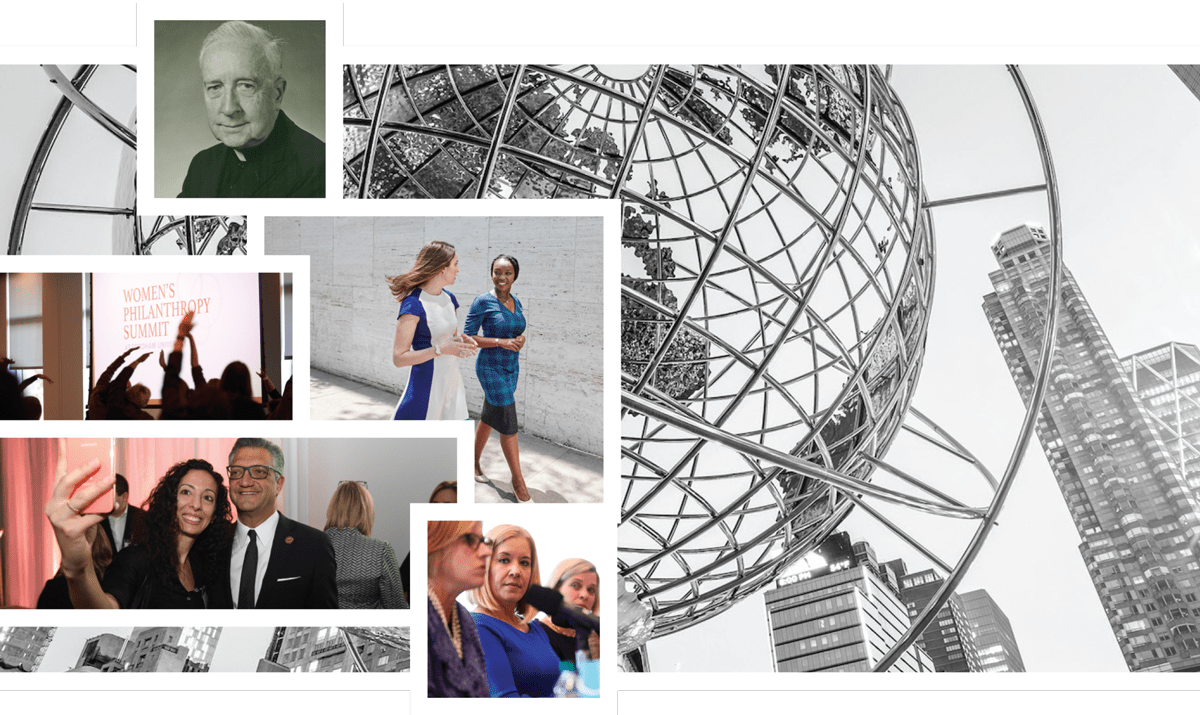
So much has changed since 1920, but there’s one thing that hasn’t changed at all: our intention to better both ourselves and the global business landscape.
Along with the Gabelli School’s growth from the five boroughs to six continents, we celebrate 100 years of dedication from our faculty, administrators, donors, and alumni. They were, are, and will continue to be change-makers and innovative leaders with the vision to redefine the way we do business. We’re standing taller than ever at 100 years, thanks to their contributions—and the core foundation we’ve upheld since the beginning.
In our first century, we realized the impact we have when we live up to our true potential—to out-inspire, out-network, out-innovate, and outlast…upending the status quo.
Join us for our next 100.
milestones
Business education at Fordham University began as the School of Accountancy in 1920, which offered courses that prepared students for the CPA exam. Opening on the 7th floor of Manhattan’s newly built Woolworth Building, this location was central to every transit line at a time when it only cost a nickel to ride the New York City subway. Shortly after, in 1923, the program enrolled 93 students. While most studied in Manhattan, several still studied at extension campuses in Hoboken and Jersey City, New Jersey.
Fordham University’s business offerings were officially designated as a School of Business in 1926 with a four-year, full-time morning program and a six-year, part-time evening program. These programs led to a baccalaureate degree.
In 1929, a four-year Bachelor of Science program was launched, requiring students to study liberal arts alongside students in Fordham College’s Manhattan Division. Business students took courses including religion, philosophy, English, science, and public speaking. The first business school Bachelor of Science diploma was awarded in 1930 to George McGrath.
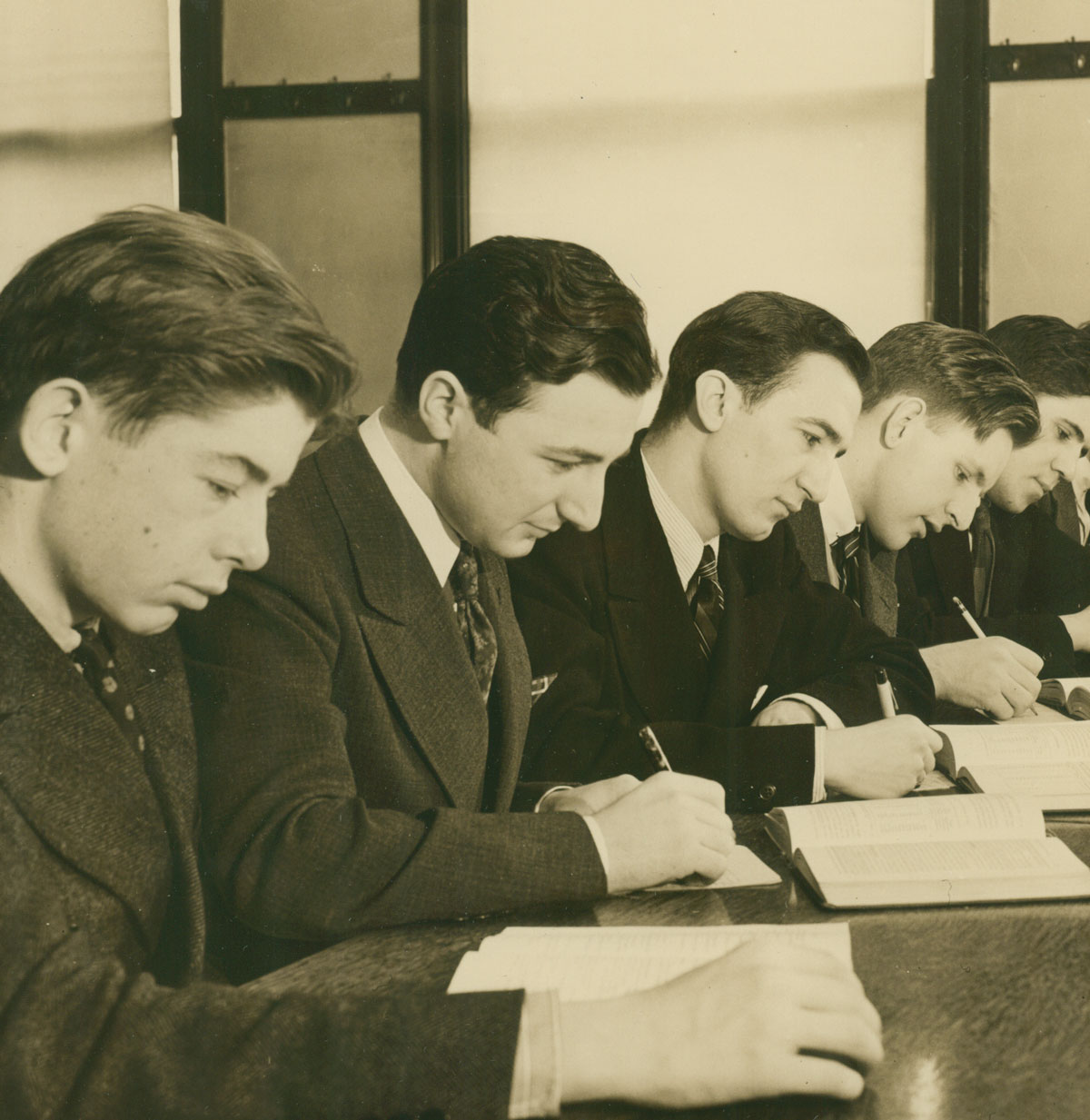

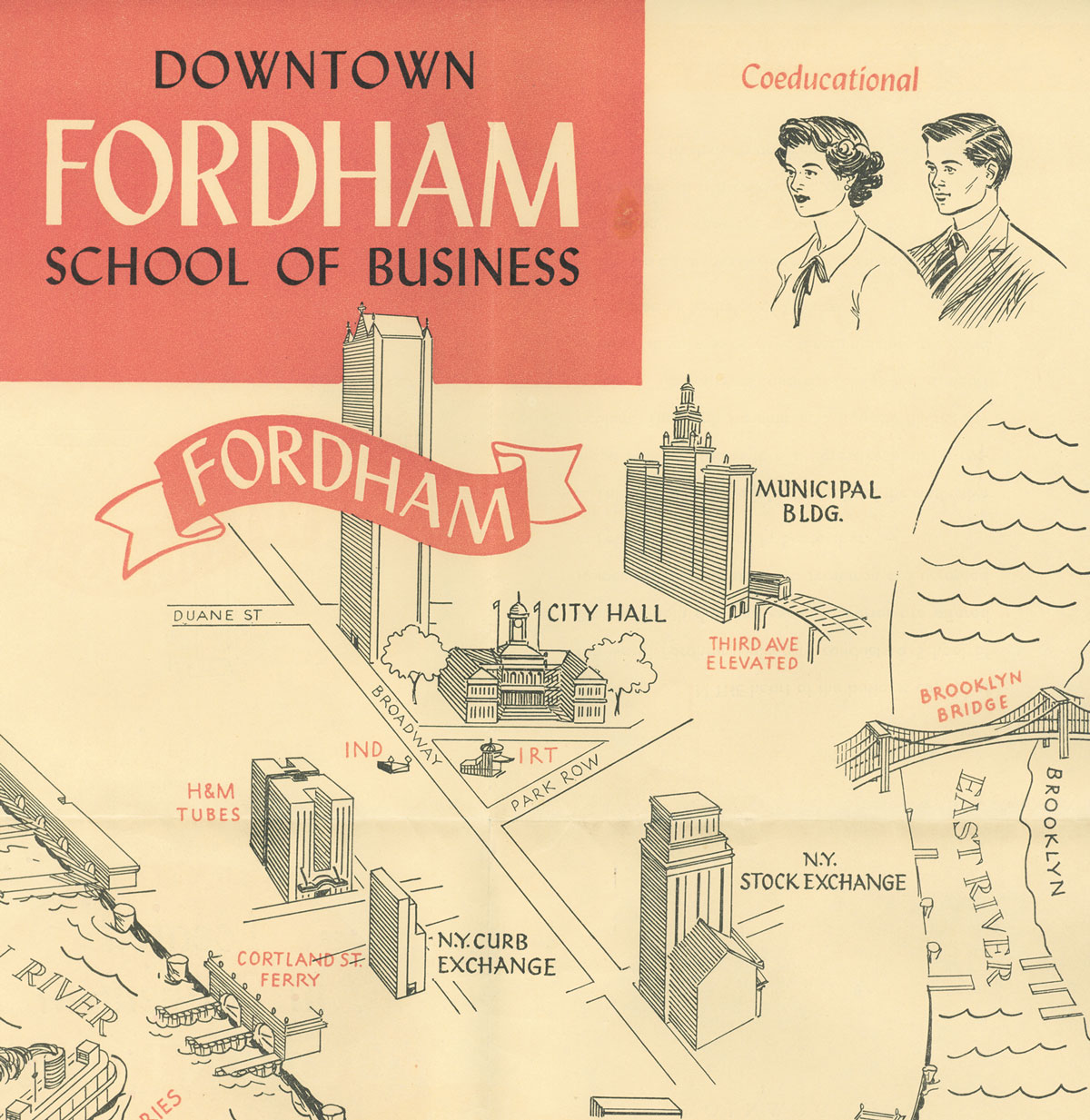
In 1937, the School of Business at Fordham University began offering specialized majors across the various business disciplines, including banking, finance, management, marketing, and general business.
High scholastic achievements earned the school accreditation with the Association to Advance Collegiate Schools of Business (AACSB) in 1939, proving the equality of Fordham’s business school with other leading schools in the country—a distinction that stands to this day. The same year, the school added a chapter of Beta Gamma Sigma, the prestigious national honor society for AACSB member colleges.
A historic building at 302 Broadway, one block north of Chambers Street, was purchased in 1943 to house the schools of business, education, and law. Fordham moved into the location just one week before classes were set to start. The 15-story building marked the first time that students in all Manhattan-based Fordham programs were able to take classes in the same Fordham-owned building.
University President Robert I. Gannon, S.J., inaugurated a campus division of undergraduate business programs, bringing business education to the Rose Hill campus in 1947. After struggling through the war years, enrollment rose to 1,943 students during the 1949-1950 academic year.
In 1954, Fordham President Laurence J. McGinley, S.J., wrote to city planners, realizing that in order to meet the demands of commuter students, a larger, permanent, Manhattan building would be essential. Fordham signed a contract with the City of New York for 6.9 acres of land on December 24, 1957, land that created the Lincoln Center campus.
Fordham’s location in the heart of global commerce has always made it easy for students to network with global business leaders, even some of the early titans of industry. In 1961, David Rockefeller, president of Chase Manhattan Bank, spoke at the fourth annual alumni business forum, “The Future of New York City as the Corporate and Financial Capital.” Over the course of much of the 20th and 21st centuries, countless industry leaders have crossed paths with Fordham business students as guest speakers—a tradition that continues to this day. In February 2020, the Gabelli Center for Global Security Analysis held an event on social value investing with Matthew Bishop, former managing director of the Rockefeller Foundation, and Howard Buffett, scholar, bestselling author, and son of legendary value investor Warren Buffett.
Citing studies that were sharp indictments of the entire state of business education in the United States, a 1963 proposal for revising Fordham’s undergraduate business curriculum stressed focusing on “managerial decision-making.”
In 1964, while early plans were being laid for a graduate school of business, the President’s Report read, “A great dean is needed, who has the vision to see what can be done in the heart of New York City for the business community—surely of the city, probably of the nation, and possibly even of the world.” The next year, Fordham appointed Silvan A. Tesoriere dean of the business school, the first layperson to hold that position.
After 14 years of planning and construction, the greatest expansion of Fordham’s physical facilities was completed when the Lowenstein Center opened in 1969. Co-educational from the start, the Joseph A. Martino Graduate School of Business Administration, housed on a single floor of this building, launched with an innovative program of evening studies and an impressive enrollment of more than 250 students.
The first 180 graduate-level degrees were awarded on July 28, 1971. With this, the school planned for a major expansion, implementing a curriculum that emphasized quantitative methods for decision-making and the “application of behavioral sciences to management.”
In 1977, after a span of only five years, the undergraduate and graduate business schools doubled their
student enrollment.
The 1970s, 80s, and 90s were times of rapid transformation for Fordham’s business programs, particularly at the graduate level. Numerous deans who served during this time period built the foundations for today’s Gabelli School of Business.
Robert Senkier (1974-1978)
Senkier was the first dean to oversee both the undergraduate and graduate business schools, establishing the concept of one faculty of business. Under his leadership, the graduate school began hiring Ph.D.-level professors, setting the stage for Fordham’s business programs to compete with other more established schools in New York City. By the end of his tenure, the school underwent a total curriculum change to go beyond an MBA initially focused on management, with offerings in such specialties as finance and economics.
Benedict Harter (1979-1983)
When Harter came to Fordham, the graduate business program was just a part-time MBA program, housed on a single floor of the Lowenstein Building and run by a small group of adjunct professors who taught evening classes. Harter was a Fordham alumnus with a law degree, and as a retired successful CFO, he was hired to guide the graduate program through its first accreditation process. He achieved this by hiring full-time, Ph.D.-qualified faculty members who had vast research experience and expanding the school’s ability to provide scholarships for talented and deserving students. The Benedict Harter Award is presented yearly to the Gabelli School senior athlete who has made significant academic and athletic contributions to Fordham.
Arthur Taylor (1985-1992)
Those who remember Taylor think of him as the “Media Man.” Taylor came to Fordham after serving as president of CBS and running an investment bank with David Rockefeller, but he was far from a run-of-the-mill retired executive. As Fordham marked 25 years since granting its first graduate business degrees, Taylor used his media background to successfully drive an aggressive expansion strategy, and the school entered a new era.
Taylor established lasting connections between Fordham and the media industry by embracing media studies, hosting events featuring prominent industry figures, and running a major advertising campaign that championed Fordham’s values. By the time his tenure was over, he had doubled the student body and established the MBA as a competitive program with excellent research faculty. Under Taylor and his immediate successor Bill Small, a fellow CBS executive, Fordham developed a strong reputation for rigorous, research-driven business education.
Ernie Scalberg (1994-2001)
By the mid-1990s, having a global presence was crucial to the success of the modern business school. Ernie Scalberg, Ph.D., came to Fordham from UCLA and immediately upon his arrival, implemented a bold global strategy at the graduate level. Under his leadership, the school launched an international MBA program in partnership with Beijing University and established partnerships with other global affiliates. An effort was made to ensure that many international business courses—and many other classes within the MBA program—featured international components.
A new international executive MBA program was also created. One month, the cohort met at Fordham’s center at Tarrytown, the next they met in Washington, D.C., and the next, Mexico City. Today, many aspects of the Gabelli School’s global vision can be traced back to programs created by Ernie Scalberg.
In April 1982, the MBA program earned AACSB accreditation.
In 1983, the first course in entrepreneurship was offered, while in the same year, the undergraduate business school launched an experimental evening program for part-time students. By 1985, a post-MBA certificate program and a joint JD-MBA program were approved. Both gave students the option to earn two degrees in four years.
In 1989, the graduate business school launched a new and innovative degree program in communications and media management, with a focus on the business aspects of these fields—the first program of its kind in the country.
In 2010, Mario Gabelli, a member of the undergraduate business school Class of 1965, made a $25 million gift to Excelsior | Ever Upward | The Campaign for Fordham. It is the largest gift in the University’s history, prompting Fordham to rename the undergraduate business school the Gabelli School of Business.
Value Investing—a long-term-oriented investing strategy popularized by renowned economist Benjamin Graham and his protégé Warren Buffett—came to the Gabelli School as a new undergraduate offering in 2012. Already a popular graduate-level focus, Fordham became the first school to offer such a specialization for undergraduates. Today the program is overseen by James Russell Kelly, director of the Gabelli Center for Global Security Analysis and lecturer in finance.
In 2012, a $38-million renovation began on Hughes Hall, first built in 1891. The renovation fitted the French gothic building with a digital-age interior, and created a Gabelli School of Business headquarters at the Rose Hill campus. The new Hughes Hall houses a state-of-the-art business center, including an in-house trading room with 15 Bloomberg Terminals.
By 2015, all business school programs—including undergraduate, graduate, and executive programs— unified under the Gabelli School of Business name, offering a continuous spectrum of business education.
In 2016, after a complete renovation, business classes began at 140 West 62nd Street, the former home of Fordham Law School. The building includes a new and expanded Quinn Library, student health and counseling centers, a trading room, classrooms, and a social innovation laboratory.
In an effort to introduce high school students to the Gabelli School and Fordham in an in-depth way, summer business programs, including NYC Business Insider, Finance Institute: Wall Street in the Classroom, and Exploring Entrepreneurship, offer future college freshmen the chance to build foundational business skills and become more informed about the college application process. These programs provide students with a ground-floor understanding of business education and help to recruit new students to the Gabelli School.
Two new fully online master’s programs were introduced in 2019. Master’s students in strategic marketing communications and management began enrolling in these new distance- learning opportunities, with a third online program in global finance following in 2020. While Gabelli School faculty have offered online and hybrid courses for years, these programs mark the school’s entrance into an emerging virtual-learning arena at the graduate level.
Marking its centennial year, the Gabelli School of Business received a top 25 spot within the 2020 Poets & Quants Top Undergraduate Business Schools rankings, while Poets & Quants ranked both the full-time MBA and Executive MBA #50. The MBA program also moved up to #57 in the Bloomberg Businessweek 2020 Best U.S. Business Schools rankings. Corporate Knights ranked the Gabelli School #12 in the Better World Business rankings, and the school received a Progressing Positive Impact Rating, recognizing its ability to serve as a lever of change in the transformation of the business school landscape.
In March 2020, three new STEM-designated concentrations in fintech, information systems, and accounting became available to Gabelli School of Business MBA students.
Faculty who are field practitioners and adjuncts have been an integral part of the Gabelli School’s educational environment. Hugh O’Reilly, Ph.D., who famously met with Fordham President Edward P. Tivnan, S.J., to pitch the idea of starting a business school at Fordham, was an accountant by trade. O’Reilly was a longtime Fordham business faculty member, helping students prepare for careers in the accounting field. There are many modern-day examples of faculty members who bring real-world and pragmatic experiences into Gabelli School classrooms. These practitioners include Kevin Mirabile, Linda Luca, Jim Kelly, Peter Johnson, and Tim Malefyt—all of whom have had decades-long careers across a range of industries before their arrival at the Gabelli School.
In the year 2020, 99 percent of Gabelli School students have held at least one internship or currently have a practical field internship in their area of study.
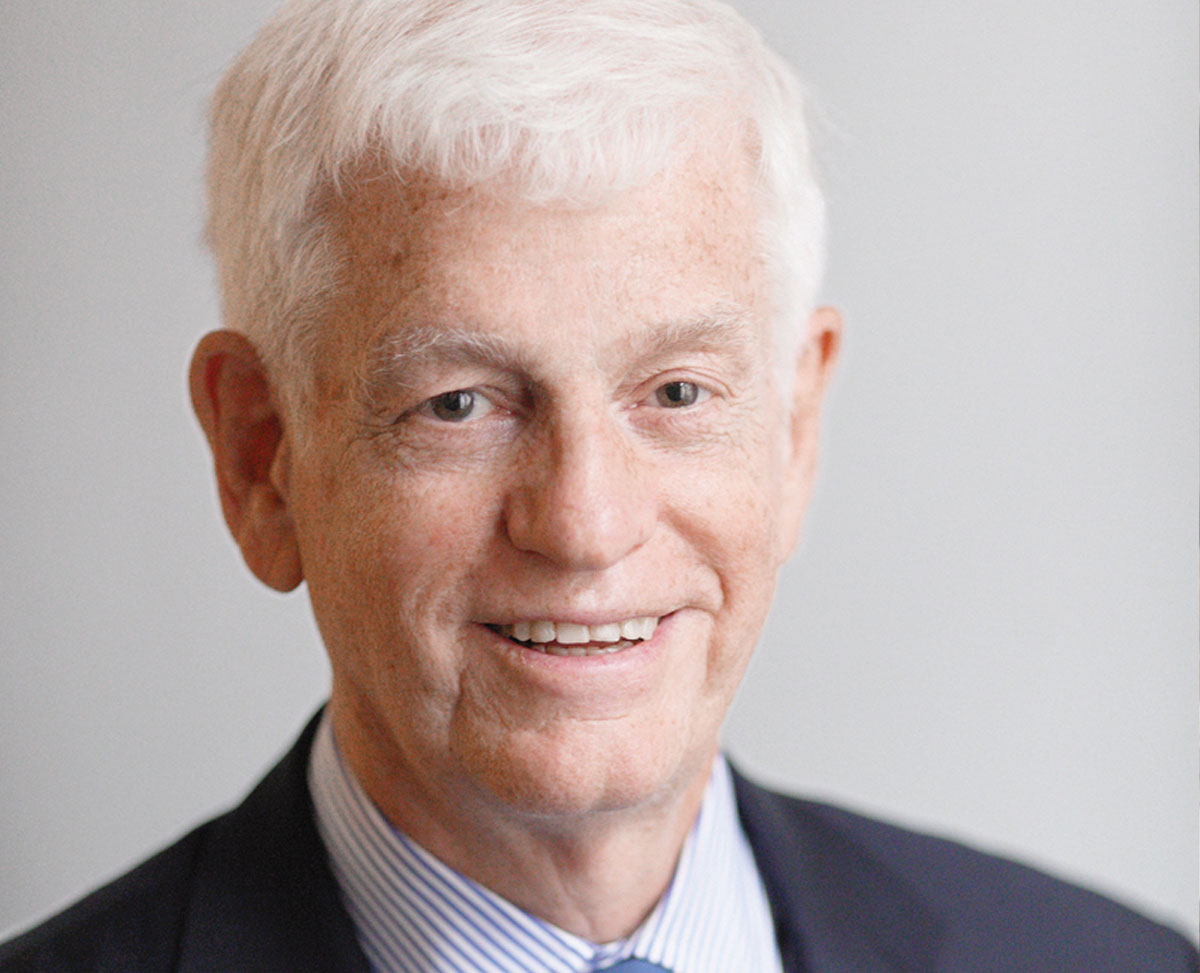
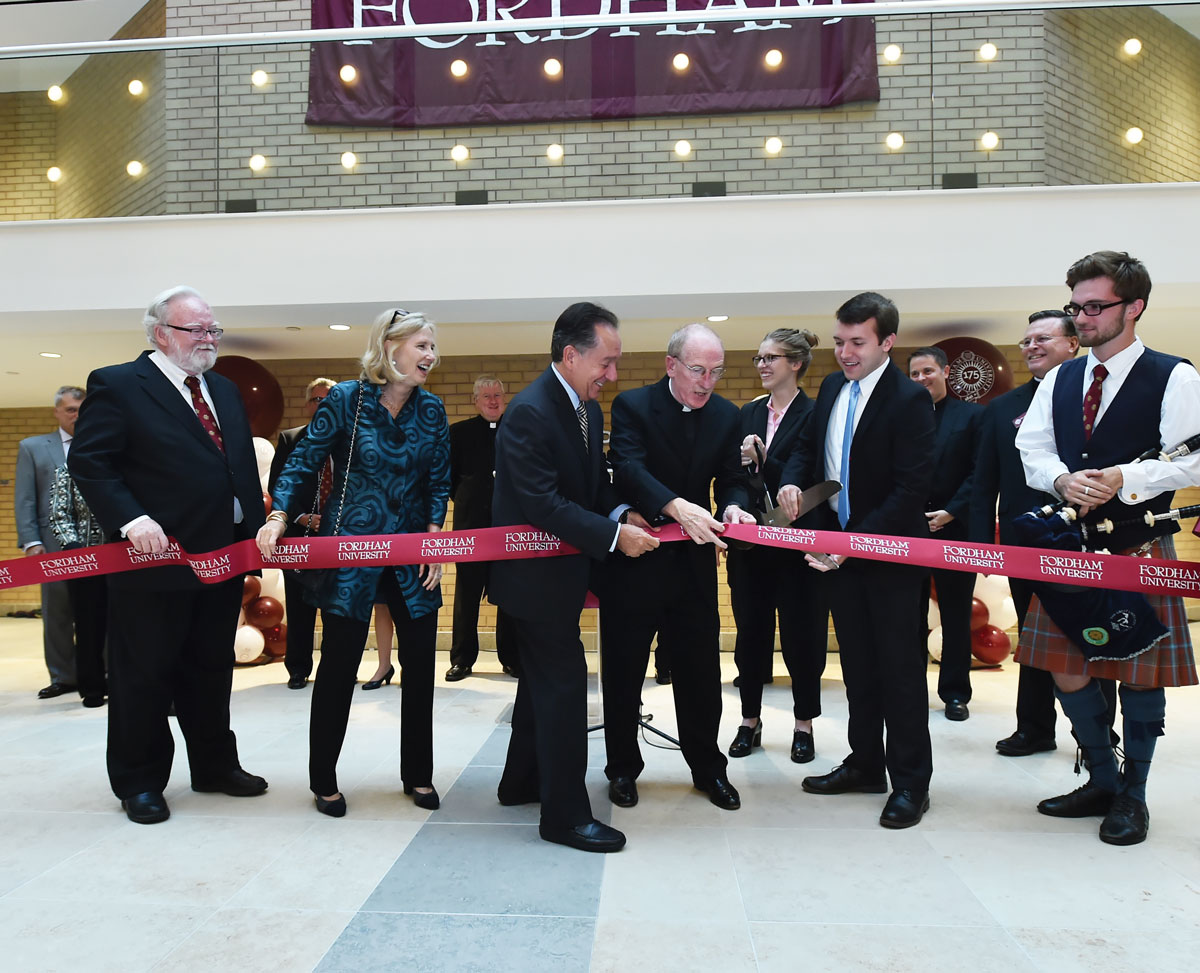
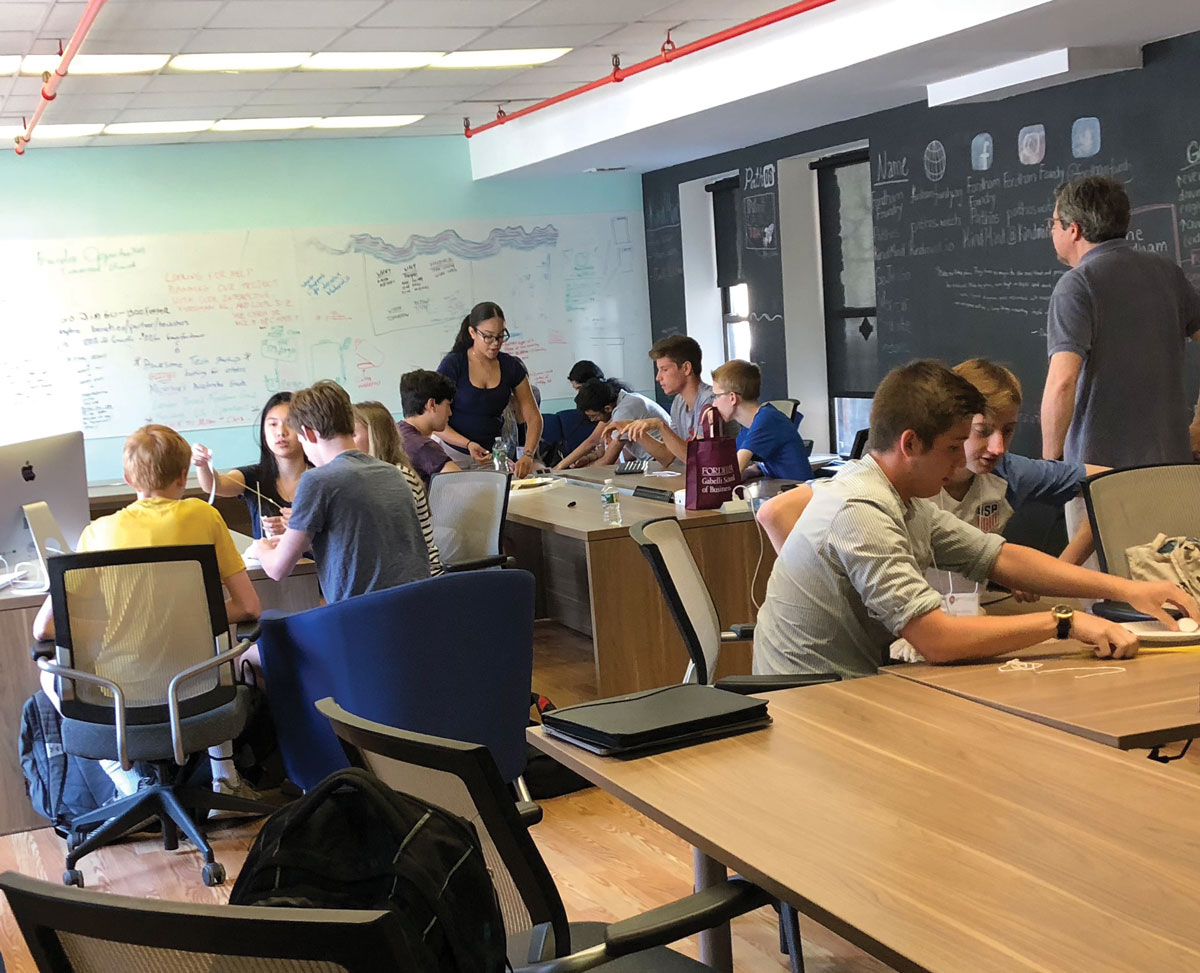

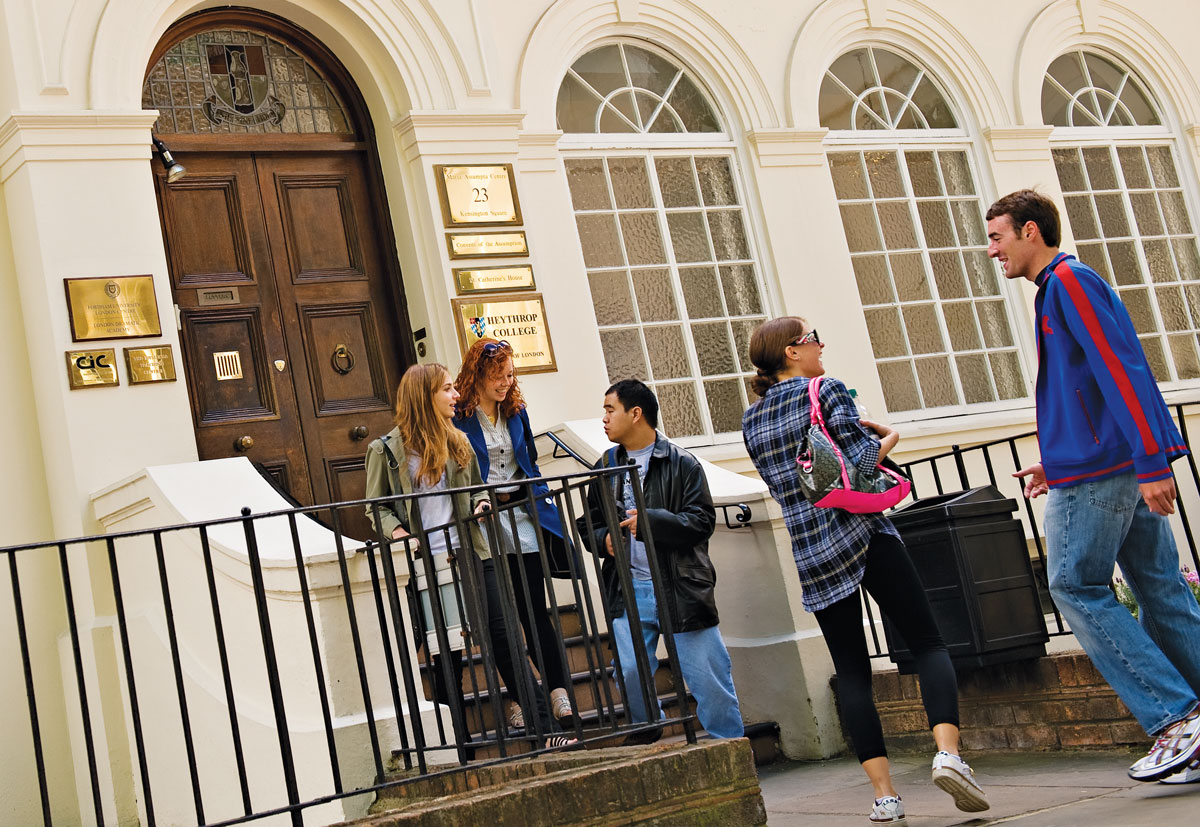
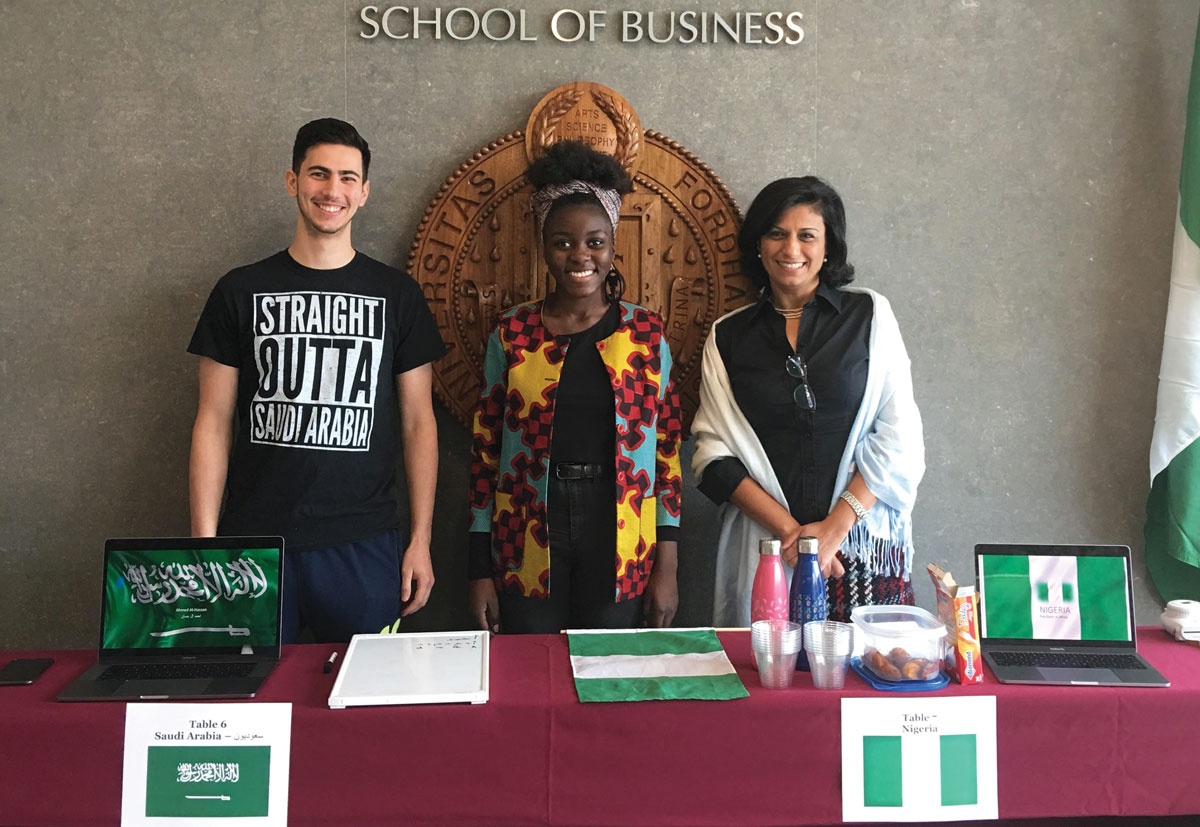

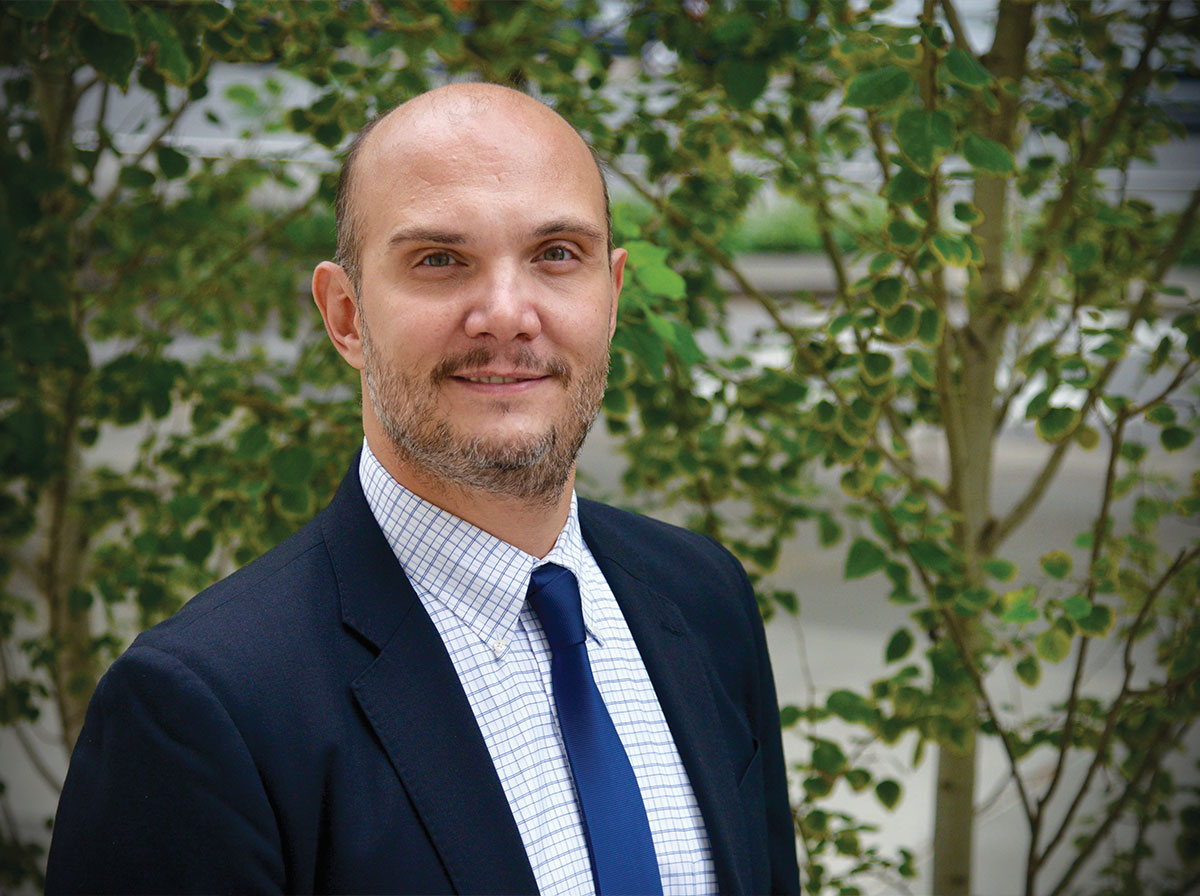
In 1953, Fordham Professor Thomas Hubin became one of six Americans on the founding faculty of the Instituto di Alti Studi per l’Organizzazione Aziendale, in Turin, Italy—the first graduate school of business administration in Europe.
The Fordham Institute in International Business launched in 1977, offering tuition scholarships to MBA students from outside the United States. This initiative to bring students from around the globe to the business school was the first program of its kind in the nation.
Fordham has had a longstanding business education relationship with schools in Ireland. In 1986, Fordham faculty welcomed a select group of 19 students from Indonesia, Ghana, Tanzania, the Philippines, Canada, the United States, and Ireland to the Irish Management Institute in Dublin. This group of faculty and students formed the first class in Fordham’s new MBA program for international executives.
In 2020, the Gabelli School announced a partner program with the University College Dublin Michael Smurfit Graduate Business School to join the MBA program with its high-ranking master’s programs. This newest international offering, developed by Associate Professor Meghann Drury-Groghan, Ph.D., allows Gabelli School graduate students to earn two master’s degrees in two years.
The undergraduate business school received a $150,000 grant from the U.S. Department of Education to further develop its GLOBE program in 1992. The program combined business concentrations with courses in language and cultural studies to provide students with an advantage in the global marketplace. By 1995, Fordham University introduced the Global Professional MBA program, focusing curricular efforts on cross-cultural management and communications, global strategy, and foreign language for business. Today, these courses are still offered as a part of the secondary concentration in global business.
In 1990, the Beijing International MBA program was launched as a venture between Peking University and numerous Jesuit business schools. Soon after, the program was ranked #1 by the Chinese Forbes magazine, topping more than 100 other business schools that opened in the same decade.
The first 18 undergraduate business students took part in Fordham’s five-week London Summer Program in Brownlow Mews, Bloomsbury, London, in 2005. In October 2018, Fordham opened the doors to its new London Centre campus in the city’s Clerkenwell neighborhood. Serving as an official University campus, American business students working with Hanaa Fawzy, assistant dean for global initiatives and partnerships, are encouraged to study and immerse themselves in U.K. business and culture by spending a semester abroad.
A home for students with global aspirations needs to have curricular and co-curricular programs that connect with the needs of modern corporations. Since 2007, International Business Week, hosted by the Gabelli School, has gathered global experts to share their insights on a wide range of industries. This year’s International Business Week, hosted by Francis Petit, Ed.D. and Hanaa Fawzy, took place virtually over Zoom in March and featured three panels of CEOs and corporate presidents talking about how businesses are adjusting to the financial disruption caused by COVID-19.
Gabelli School student Sama Habib, BS ’14, was one of only three Americans and only 30 young people worldwide to be accepted to attend a “Peace Building in Eastern Europe” seminar in the Republic of Moldova in October 2013. The conference allowed young adults to discuss strategies for enhancing peace in Eastern Europe while learning more about the region and participating in leadership-development exercises.
To meet the demand for global thought leadership across the modern business landscape, an undergraduate bachelor’s program in global business was launched at the Lincoln Center campus in 2014. By the fall of 2019, a record-setting 158 first-year students hailing from 27 countries began studies in the program.
Sertan Kabadayi, Ph.D., marketing professor and area chair at the Gabelli School, conducts research primarily in the areas of distribution channels, the use of control mechanisms in buyer-seller relationships, and website trust and loyalty—but he’s also dedicated to creating a better world through better business and sustainability efforts. His research has been published in several journals, including the Journal of Marketing, Journal of Business Research, Industrial Marketing Management, and Psychology & Marketing. His service has been recognized through numerous awards, including the 2015 Gabelli School of Business Faculty Service Award, the 2013 and 2012 Gabelli School of Business Marketing Area Excellence in Teaching awards, the 2011 Gladys and Henry Crown Award for Faculty Excellence, the 2011 Stanley Fuchs Award, and many others.
When Iftekhar Hasan, Ph.D., was named University Professor in the fall of 2019, his presentation on Christian morality and overindebtedness filled a lecture hall at the Lincoln Center campus. He holds the E. Gerald Corrigan Chair in International Business and Finance, and has earned several other honors and recognitions, including being both a Fulbright Scholar and selector and the recipient of the “Doctor Honoris Causa” degree from the Romanian-American University in Bucharest.
Hasan’s research interests include corporate finance, capital markets, and emerging economies. He has more than 350 publications in print, including 16 books and edited volumes, and more than 270 peer-reviewed articles in distinguished academic outlets in finance, economics, international business, management, accounting, operations research, and information systems. He is the managing editor of the Journal of Financial Stability and has served as an associate editor for several other reputed academic journals.
In the early spring of 2016, the Gabelli School of Business launched a Doctor of Professional Studies (DPS) program, in Beijing, China. The DPS program, overseen by Professor An Yan, Ph.D., associate dean of research and faculty development, is considered on par with a Ph.D., but geared to practitioners and professionals. The inaugural class consisted of 29 students who averaged 20 years of work experience in multinational companies representing a wide range of industries.
The Gabelli School’s expansive curriculum across all levels of study was recognized by Poets & Quants in December 2016 as having the highest number of classes with a significant global component. That year, 42 courses ranged from classes taken during semester-long international study trips, to classes taught at the London Centre, and those taught at home in New York City. In 2016, an immersive, upper-level management course in Singapore was introduced.
The Gabelli School’s Master of Science in Global Finance program uses an innovative model to pair a cohort of New York-based students with students at 29 partner institutions around the globe. Students at these schools complete some of their coursework at their home institutions, then spend several weeks in New York City to take classes and learn about global commerce from experts at Nasdaq, the Federal Reserve Bank of New York, and corporate affiliates. In 2018, the program was ranked #50 globally in the Financial Times Global Masters in Finance Pre-Experience rankings.
In 2019, Gabelli School Dean Donna Rapaccioli, Ph.D., joined Michael Garanzini, S.J., to lead a consortium of Jesuit business school deans from each global region of the Jesuits, exploring the creation of a new paradigm for global business education centered upon sustainability and social justice.
Gabelli Fellows are accomplished scholars who chose the Gabelli School as their platform for making a difference in the world. Current fellows include global thought leaders who are at the forefront of social innovation policy and practice—Katherine Milligan is a global social entrepreneurship expert; Patrick Struebi is founder and CEO of Fairtrasa Group, a social enterprise that lifts marginalized, small-scale farmers out of poverty; and Jerry White is a Peace Nobel laureate who has led high-impact campaigns resulting in international treaties on landmines, cluster munitions, and the rights of people with disabilities.
In the fall of 2019, 53 MBA students from 23 different countries visited Buenos Aires, Argentina. The students were immersed in local business, meeting with heads of NGOs about topics ranging from finance and marketing to human resources. Additionally, the students worked with various nonprofit groups focusing on early childhood care, education, and overall citizen well-being. International immersions such as this occur annually for all MBA students, and the Gabelli School provides opportunities for school-sponsored global study immersions at all levels of business education.
This spring, as the COVID-19 health crisis struck, Tiffany Ziyan Zhou and Curtis Buckley, both first-year, full-time MBA students, mobilized fellow program participants to raise $1,200 to purchase N-95 masks for Mensajeros de la Paz, the NGO they worked with just prior to the fall 2019 semester.
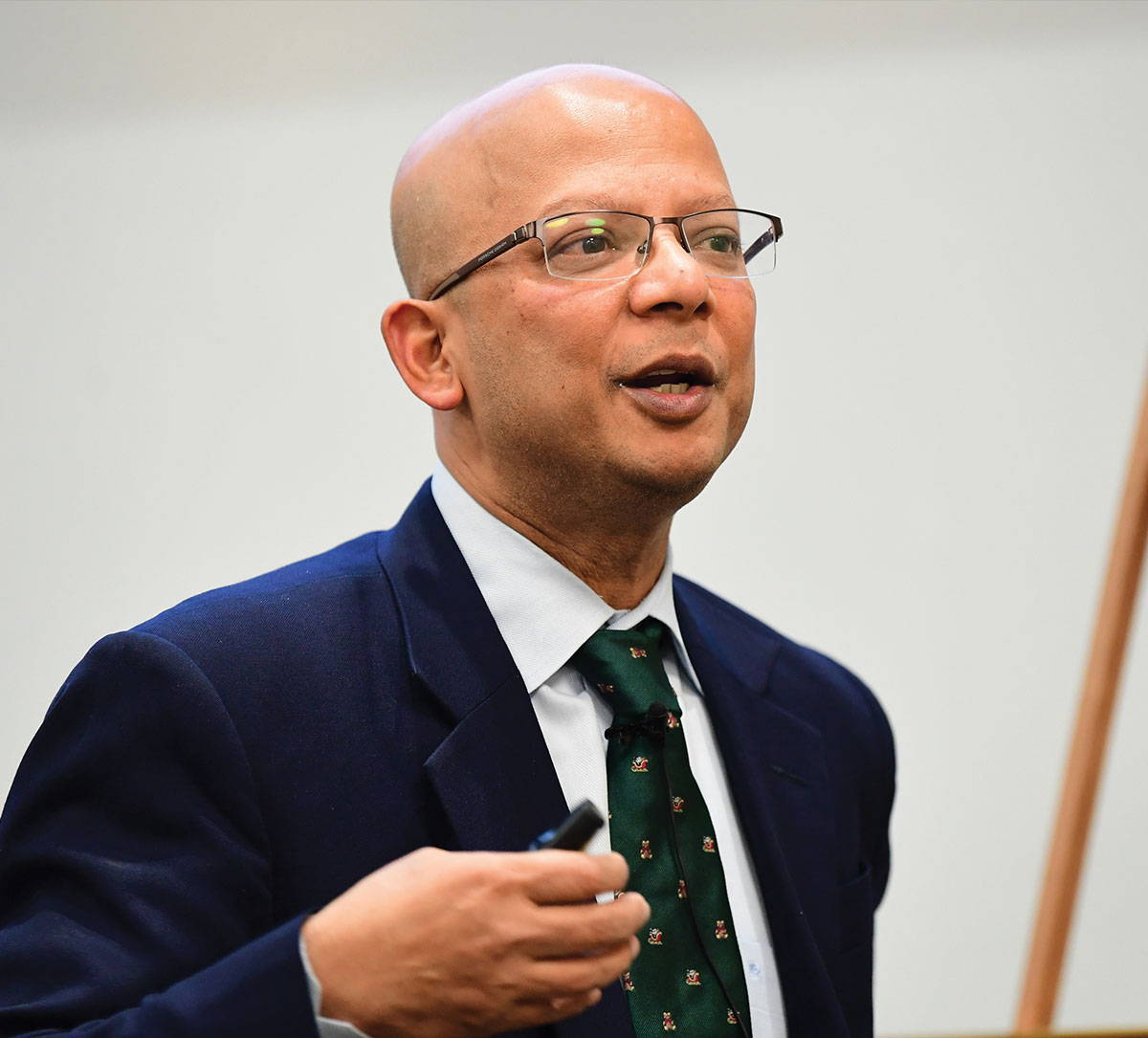
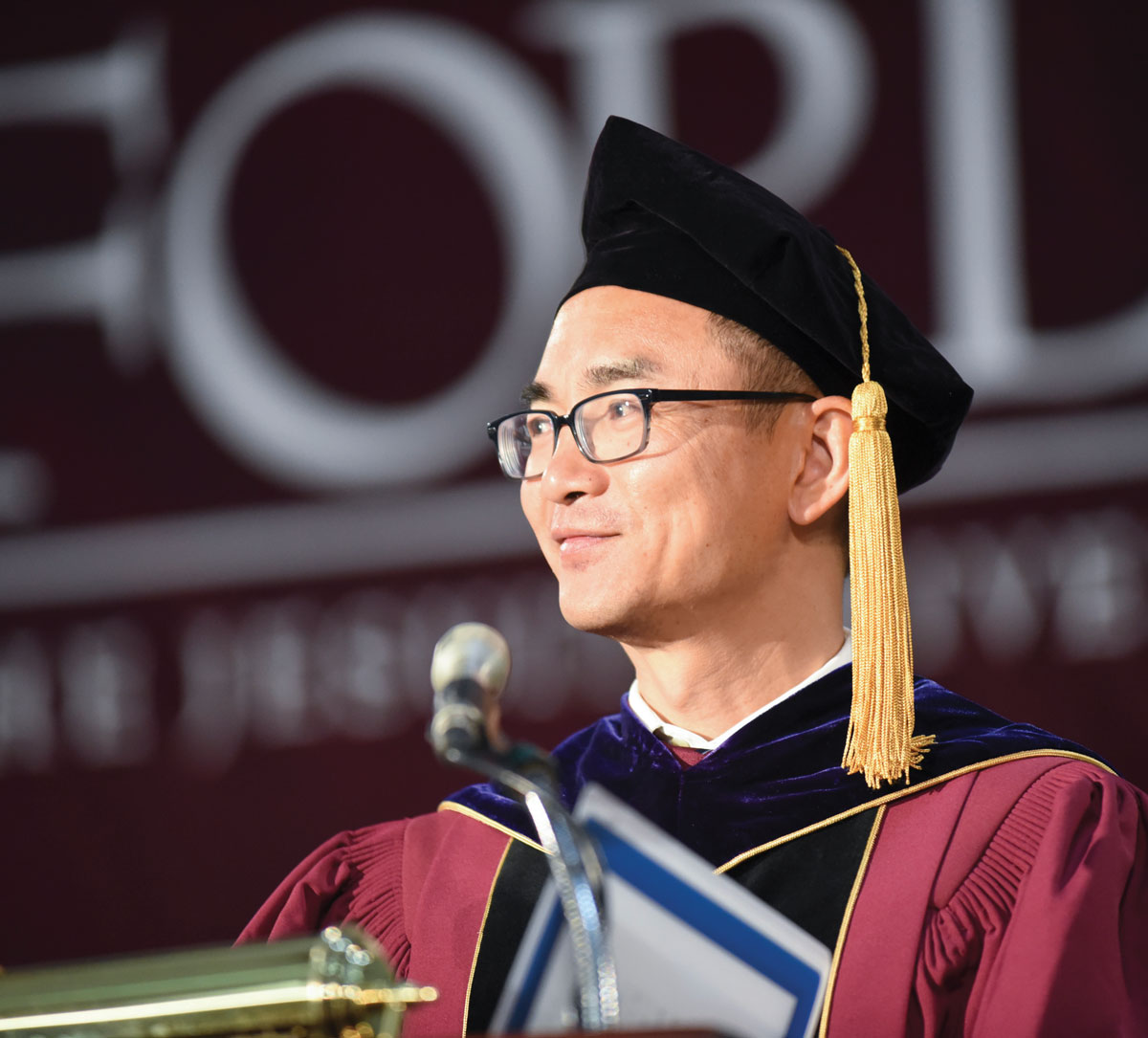
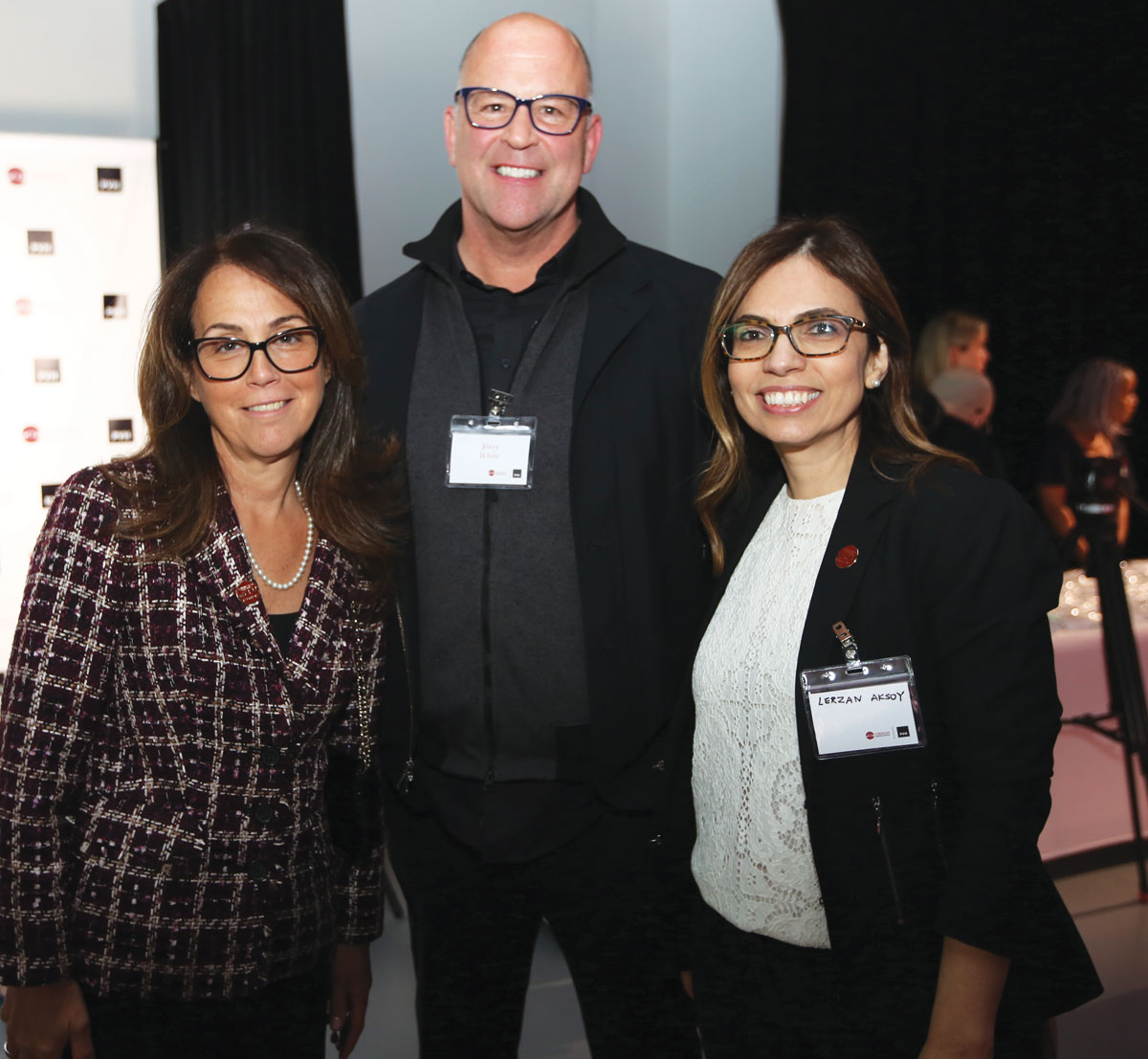

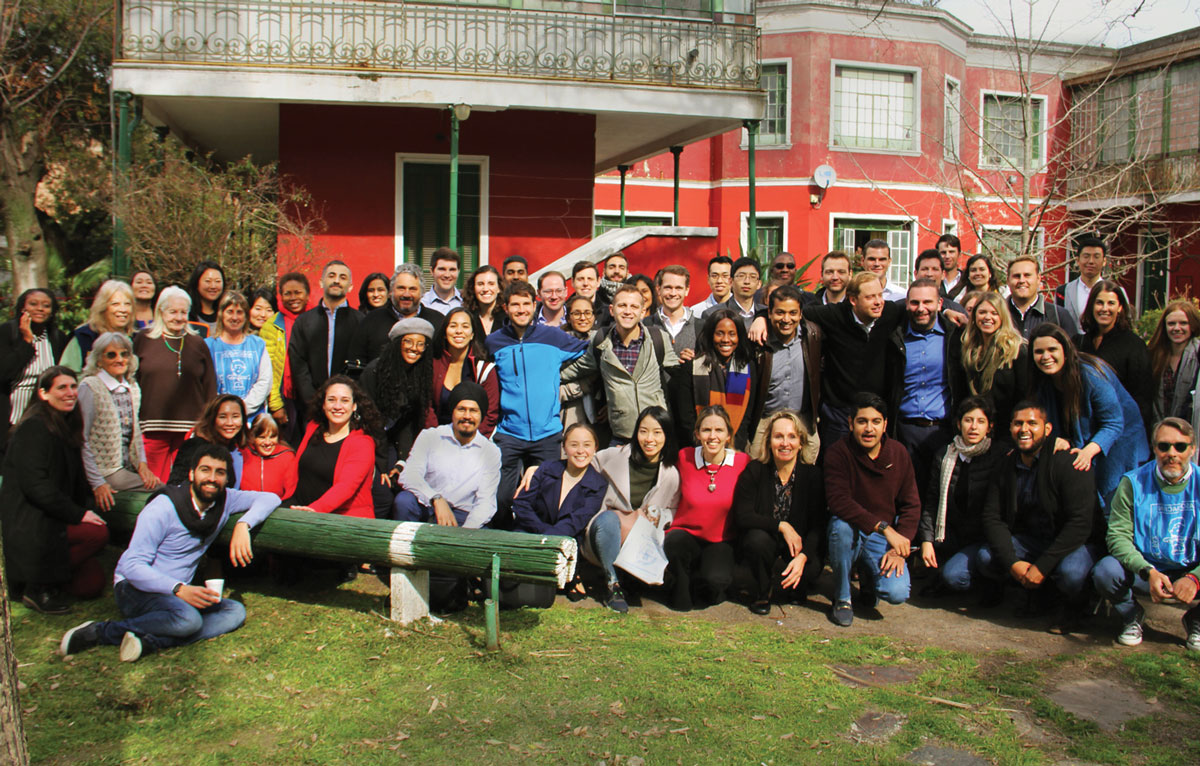
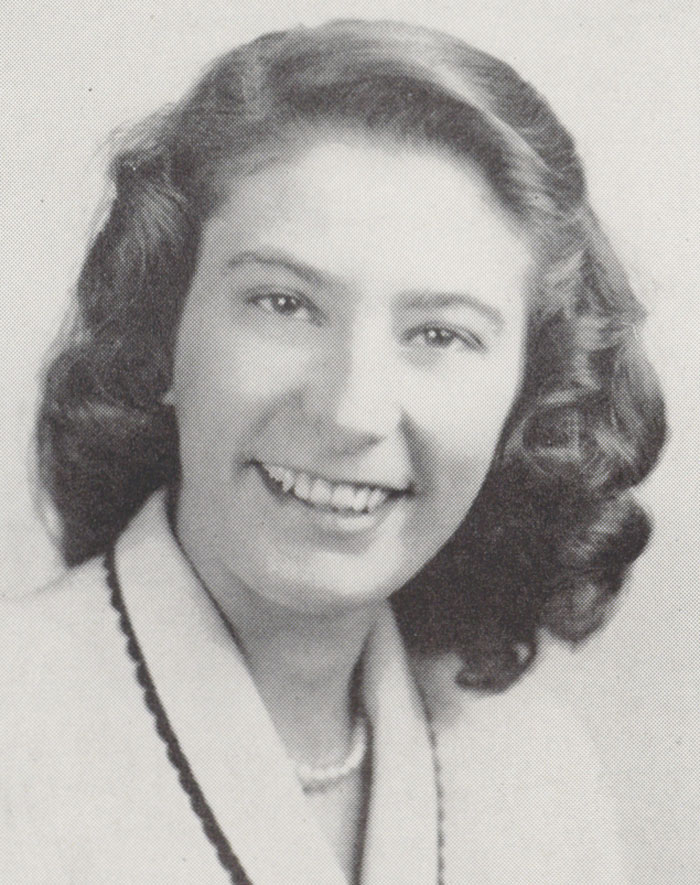
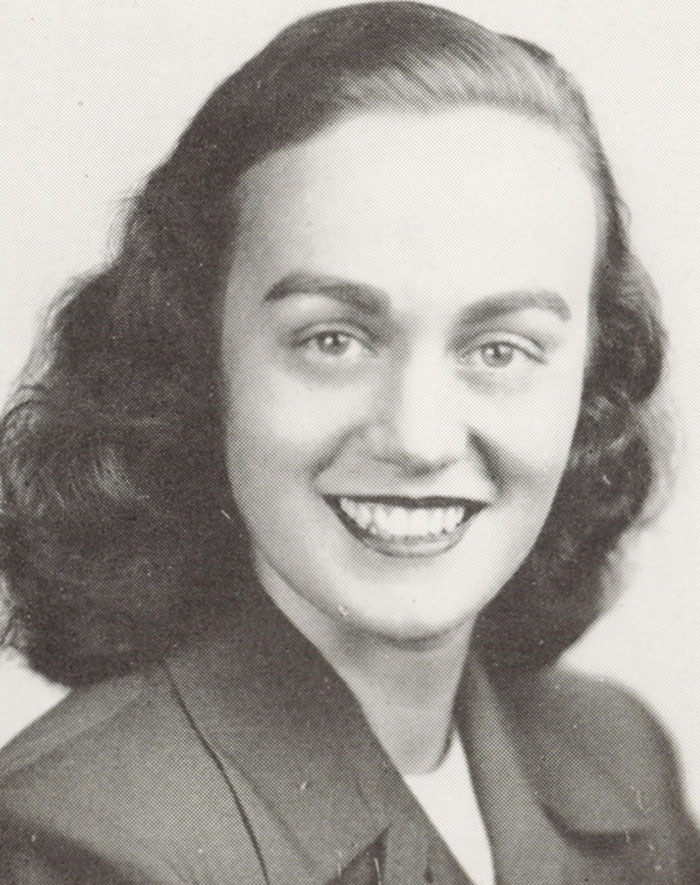
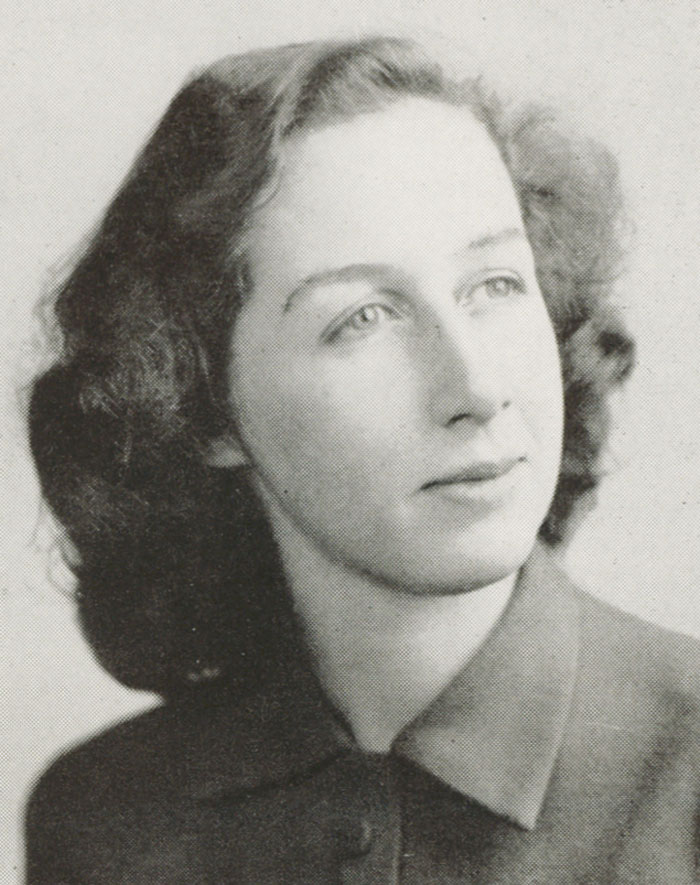
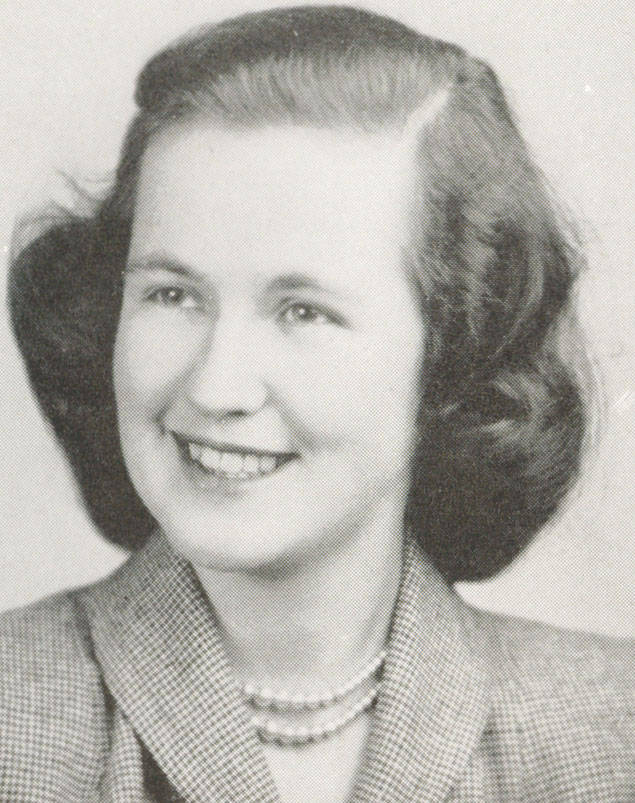
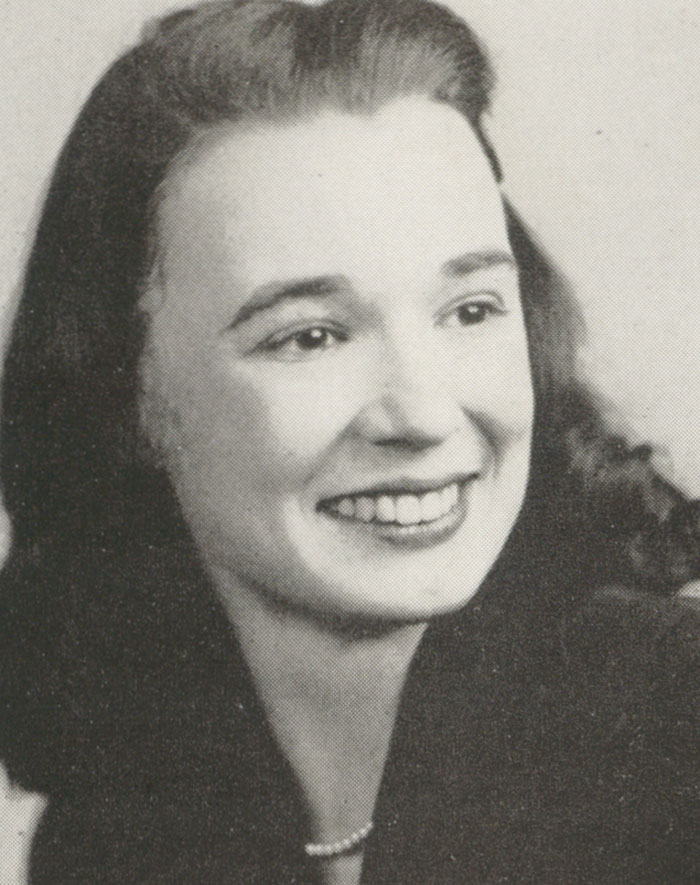





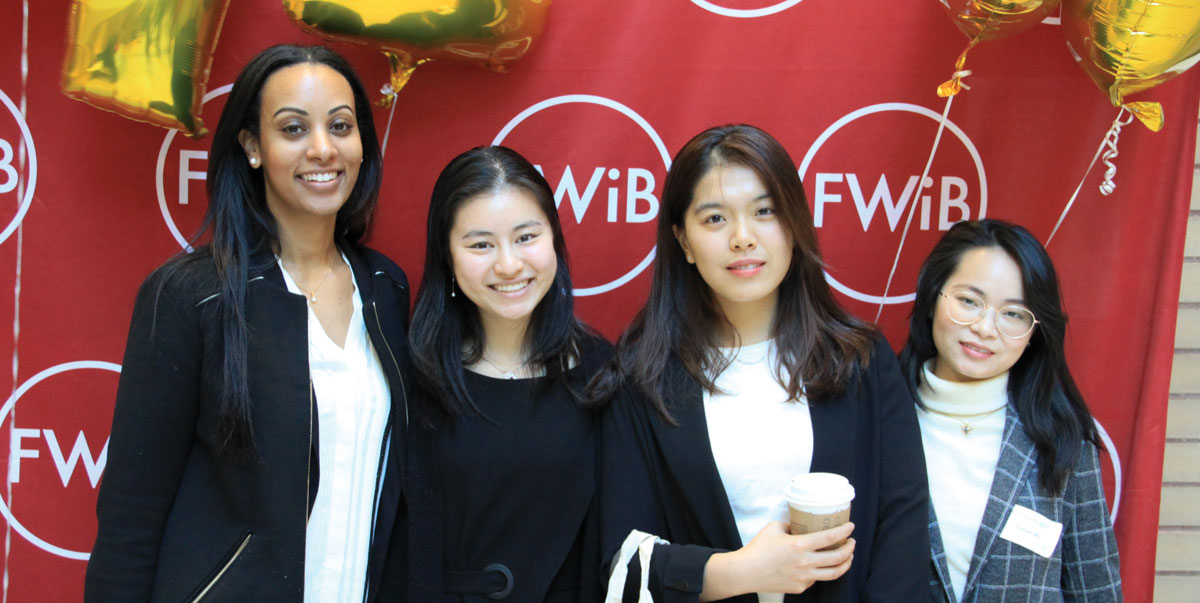
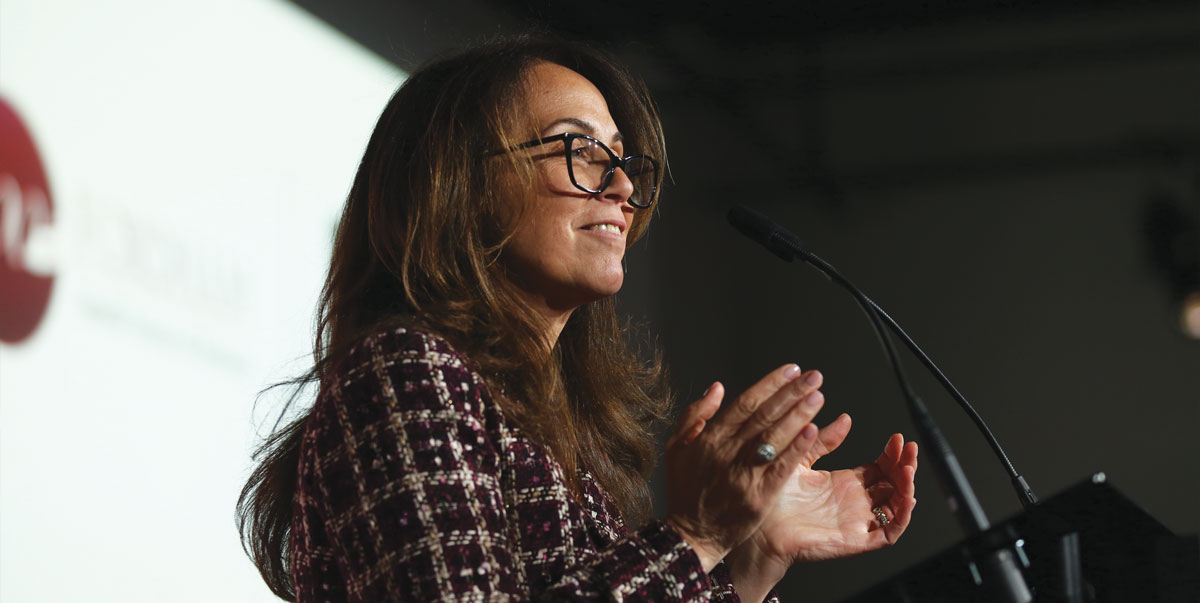
The first female business students were admitted in 1944. At a time when cultural norms pushed women toward domesticity, five women—Margaret Brew, Margaret Casey, Roma Fiore, Mary Wallace Turney, and Mary Margaret Wallace—graduated in the Class of 1948.
Fordham is home to an array of student-run organizations that focus on promoting gender equality and inclusion on campus, in communities, and in the workforce. For more than 20 years, Fordham Women in Business has recognized the unique needs of women in the corporate environment, bringing together students, alumni, and professionals to create an open forum of mentoring and teamwork. Other groups include GirlBoss, the Fordham chapter of Smart Woman Securities, the Feminist Alliance, and She’s the First, a nonprofit organization on the Rose Hill campus that raises money and awareness for girls’ education in developing countries.
A chapter of Gamma Alpha Chi, a national professional advertising fraternity for women, was established at Fordham University’s business school in 1953.
When Sharon P. Smith, Ph.D., was appointed dean of the undergraduate business school in 1990, she was the first female dean at Fordham University and of any Jesuit business school. Smith was later named dean of both the undergraduate and graduate business schools.
Fordham’s chapter of Smart Woman Securities (SWS), focusing on investment education for undergraduate women in business, was founded in January 2009, becoming the third university chapter to exist. Related chapters have been established at other universities, such as Yale University, Columbia University, and Harvard University. Fordham’s SWS equity research team has won the Investment Portfolio challenge with the highest investment return numerous times, as well as various stock pitch competitions across the East Coast. Recent alumnae of Fordham’s SWS chapter have moved on to successful careers at all of the Big Four accounting firms, large investment and corporate banks, and other Fortune 500 companies.
Donna Rapaccioli, Ph.D., was appointed dean of the undergraduate business school in 2007 and interim dean of the graduate business school in July 2014. By 2015, she was named dean of the newly unified graduate and undergraduate school.
More than half of Gabelli School students and graduates are female. Recognizing the need to engage, inspire, and educate current students and Gabelli School alumnae on the topics of financial literacy, giving back, and self-confidence, the first annual Women’s Philanthropy Summit took place in November 2017.
Ever since, the summit invites nearly 200 women annually to participate in day-long workshops and panel discussions featuring notable female Fordham graduates. Attendees are also invited to participate in Giving Circles, inclusive philanthropic opportunities in which donors can choose the organizations and charities they are most passionate about supporting all while networking with other like-minded donors.
The Women in Alternative Investments’ focus group was established in 2018 as part of the Fordham Alternative Investments Club. Today, seniors lead this student-run organization, with the mission of fostering mentorship and educating undergraduate women interested in hedge funds, private equity, and real estate investing. The group regularly hosts alumni networking dinners and forums. Members also attend industry events and discuss issues related to women in asset management and alternative investing.
In 2018, female employment at the Gabelli School hit a peak at 287 across all faculty, staff, and administrators—a four-year high. Today, the Gabelli School continues its commitment to diverse hiring practices and champions a progressive workplace for all. Also, the future really is female—58 percent of students in Fordham University’s undergraduate class of 2023 are women.
Ellen Alemany, MBA ’80, CEO and chairwoman of the commercial finance company, CIT Group, received an honorary doctorate of humane letters and served as the 2019 graduate diploma ceremony speaker. Alemany was recognized by the Fordham University Board of Trustees for her distinguished career in banking and her commitment to fostering economic opportunities in underserved communities.
BUSINESS WITH PURPOSE
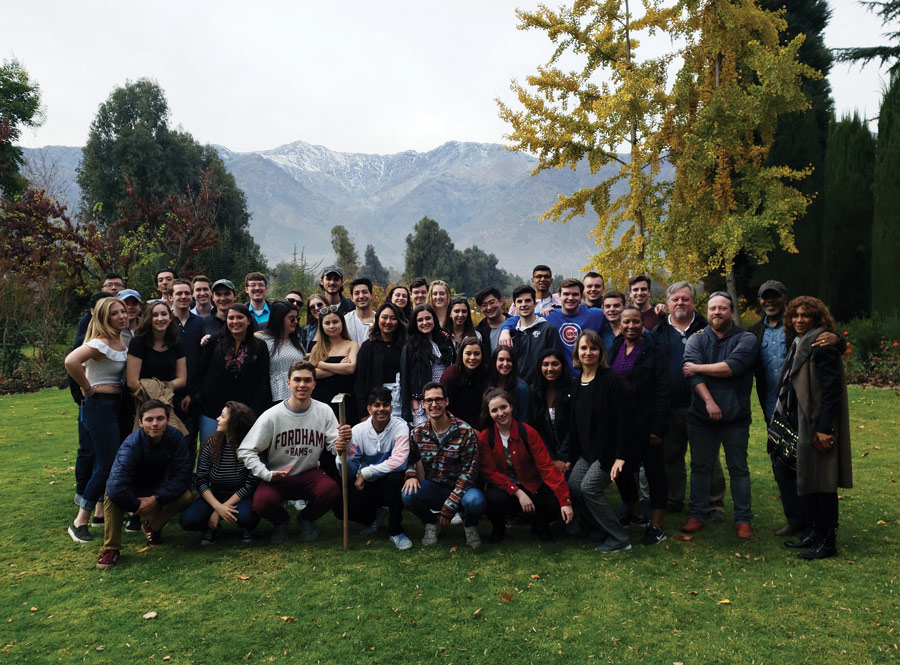
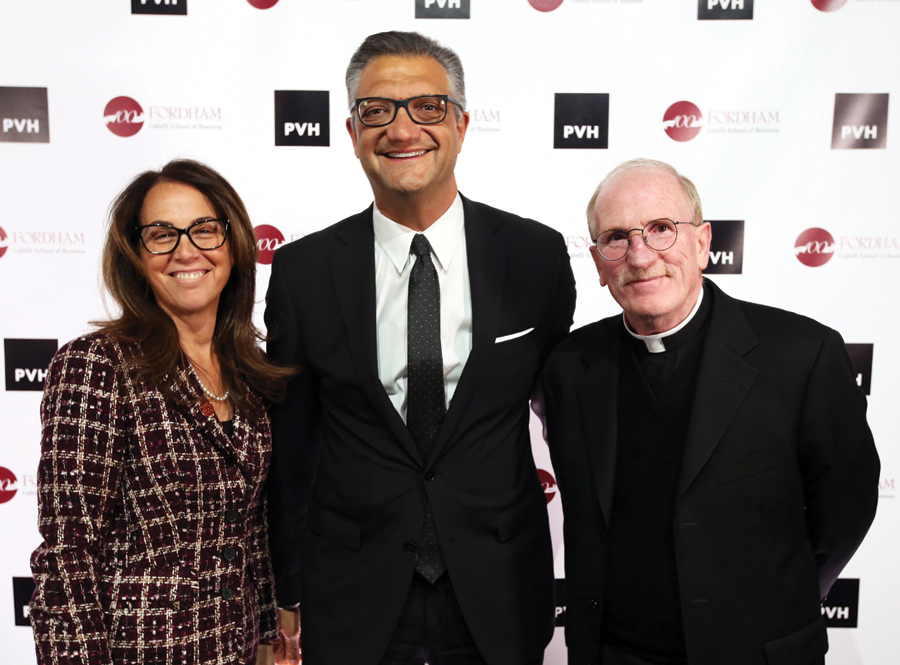

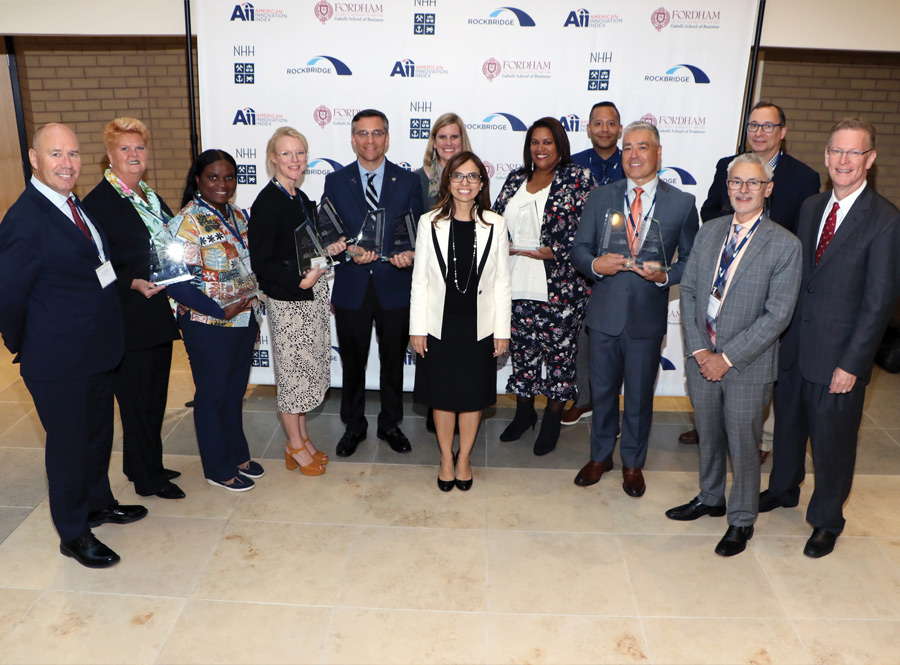
In 2007, the undergraduate and graduate business schools united to kick off efforts to develop curricula that adequately reflect the global aspirations of students, connect with the needs of modern multinational corporations, and make cultural awareness a cornerstone of a Fordham business education. Each year, the Global Business Honors Program (GBHP) enables 25 students to experience business in three continents—North America, Europe, and rotating yearly between South America and Asia—through a combination of the U.S.-based semesters and expenses-paid GBHP trips.
In 2009, the Gabelli School proudly became a U.N. Signatory school. Widespread institutional innovations extended to faculty training in pedagogy, curricular innovations, expanded scholarly research in responsible business, and experiential practica with external partners. Today, the Gabelli School also holds a rare distinction as one of only 30 business schools to earn a U.N. PRME Champion designation.
Marking 100 years of business education at Fordham in 2020, PVH Corp., the parent company of world-renowned fashion brands like Calvin Klein and Tommy Hilfiger, announced the dedication of $1 million to the Gabelli School to enhance its sustainability curriculum and support academic conferences that convene and develop compassionate business leaders.
In the fall of 2019, an official Diversity, Equity, and Inclusion Student Advisory Board was established at the Gabelli School of Business. The board is led by Clarence E. Ball III, Gabelli School lecturer and interim director of diversity, equity, and inclusion, and Marisa Villani, senior assistant dean for undergraduate studies. The board was designed to further strengthen the Gabelli School’s diversity initiatives at the undergraduate level, along with more than 30 faculty, administrators, and staff handling broader DEI initiatives school-wide. “Listening to one another despite our differences is the best way to learn and the only way to become informed leaders,” said Dean Donna Rapaccioli, Ph.D. “To that end, the Gabelli School embraces our increasingly interconnected world by nurturing a community that seeks common ground, celebrates diversity, and prioritizes inclusion.”
With purpose-driven business and sustainability at the forefront of how corporations approach social and environmental change, the Gabelli School entered into a partnership with Stanford University’s Innovation Fellows program in 2019. Led by Bozena Mierzejewska, Ph.D., associate professor and area chair of communications and media management, the program provides new ways for students to approach global challenges with an entrepreneurial mindset, empowering them to drive institutional change.
The Association to Advance Collegiate Schools of Business (AACSB) recognized the Gabelli School of Business for its commitment to socially conscious business education, selecting it as one of the winners in the 2017 Innovations that Inspire competition. The award recognized the school’s involvement with the Fordham Social Innovation Collaboratory, which gives the entire Fordham University population as well as the outside community a structured way to make real changes in society. Out of 315 international submissions to Innovations that Inspire, the Gabelli School was one of only 35 selected by AACSB.
Since 2017, the Fordham Foundry, under the leadership of Executive Director Al Bartosic, BS ’84, has hosted its annual Pitch Challenge competition. The competition invites all members of the Fordham community to pitch business ideas to venture capitalists and entrepreneurs for a chance to win a monetary prize that will, in turn, help fund their proposition. Winners have included undergraduates, graduates, and alumni. This year, thanks to sponsor Adobe, the Pitch Challenge took place virtually, with an initial round of asynchronous entries and a live final competition judged by industry experts and hosted in April via Zoom.
In 2018, the Gabelli School became the academic partner for the Sustainability Accounting Standards Board (SASB), advancing the field of sustainability accounting and enabling courses in sustainability reporting and research. Led by Professor Barbara Porco, Ph.D., in collaboration with Clinical Assistant Professor Kelly Ulto, BS ’88, the SASB is currently designing a sustainable reporting course for Gabelli School juniors.
The Gabelli School of Business, along with the Norwegian School of Economics and Rockbridge Associates, announced the launch of the American Innovation Index™ (Aii) in 2018, led by Associate Dean of Undergraduate Studies Lerzan Aksoy, Ph.D. The index established the first survey in the United States that measures companies’ level of innovation based on customers’ experiences doing business with them. The Aii also measures customers’ perceptions of companies to create positive change through the Social Innovation Index™ (Sii).
Launched in the fall of 2018, the Ignite Scholars Program, led by Brian Dunn, assistant dean for honors opportunities and dual-degree programs, was created to engage students who already exhibit the desire and talent to create significant, lasting change in the world and provide them with an honors-level education that will better prepare them to make an impact. Ignite Scholars are challenged to critique the current landscape in business, society, and their lives and to think of innovative answers to the question, “What is next?”
This selective program connects in-class learning with firsthand experience: students visit Silicon Valley as a hub of innovation and explore Detroit with a focus on urban renewal.
The Gabelli School of Business Ground Floor class, created in 2014, aims to teach freshmen the techniques and essentials to guide them in the making of a business plan. The class guides students through an entrepreneurial exercise to create their own business plan using a hypothetical $25,000 budget, with a focus on diversity, sustainability, and culture.
In January 2020, PVH Corp. sponsored the Ground Floor Challenge, in which six teams of finalists presented their business plans for solving one or more of the U.N. Sustainable Development Goals. The winning team, RAWBAZAAR, pitched a platform that allows consumers to find clothing brands that produce clothes responsibly, funded by a commission fee and marketed to eco-conscious consumers.
Started in 2016 by Greer Jason-DiBartolo, associate dean for academic administration, and Miguel Alzola, Ph.D., law and ethics professor, the Business Ethics Case Competition invites students to develop an original study of a business case that raises economic, ethical, and legal concerns. This process further encourages the humanistic, intellectual, and spiritual development of business students within the Gabelli School. The winning teams receive a cash prize, and the top team is invited to represent Fordham at the International Business Ethics Case Competition.
The Social Innovation Collaboratory was launched in 2014 to create a hub for Fordham’s social impact and sustainability efforts. The same year, Fordham University earned the designation as one of some 25 Ashoka U Changemaker campuses in the world.
Co-sponsored by PVH Corp. and EY, the Gabelli School hosted the “Work 2040: Future of Work in a Sustainable World” conference in March at Fordham University’s Lincoln Center campus. The conference invited renowned scholars and industry change-makers to explore emerging trends that are shaping work and society, uncovering what companies, institutions of higher education, and policymakers are doing to prepare for the future.
As a Jesuit university, Fordham emphasizes the importance of self-reflection and personal development. Retreats have always been part of a Fordham business education and today, overnight retreats offer students the chance to unplug from the rigorous pace of business studies and New York City life and focus on such topics as building authentic relationships, letting go of fears, setting goals, and meditating. Specific retreats also bring together student groups like Fordham Women in Business. Additionally, Vincent DeCola, S.J., serves as academic advising dean for first-year students at the Lincoln Center campus.
Numerous endowed faculty chairs, including the Larkin Chair of Character-Based Leadership and the James A. F. Stoner Chair for Global Sustainability, provide permanent funding for faculty members whose research especially aligns with Fordham values. Faculty research has also been bolstered by rotating endowed chairs, generously funded by lead donors and leveraging support from the Gabelli Foundation. This year’s endowed chair-holders—Miguel Alzola, Ph.D., Benjamin Cole, Ph.D., Michael Pirson, Ph.D., Yi Tang, Ph.D., Hye Seung Lee, Ph.D., and James Lothian, Ph.D.—receive extra research funding to help them contribute more original insight to academia and industry. Over the last five years, Gabelli School faculty members have published more than 500 journal publications, including 50 in the Financial Times’ Top 50 journals.
In the spring of 2020, Fordham University’s Gabelli School of Business became the official and exclusive partner of the Responsible Business Coalition (RBC) through the efforts of Lerzan Aksoy, Ph.D., associate dean of undergraduate studies, Frank Zambrelli, executive director of the Fordham Future Coalition, and Cara Smyth, founder of the RBC and a Gabelli Fellow.
The RBC promotes responsible business solutions across industries with a focus on: the intersection of profitability and sustainability; the consideration of environmental, social, and governance factors; and the aversion of material business risks. The coalition brings together stakeholders in various industries to implement new strategies that raise the bar for sustainable business practices.
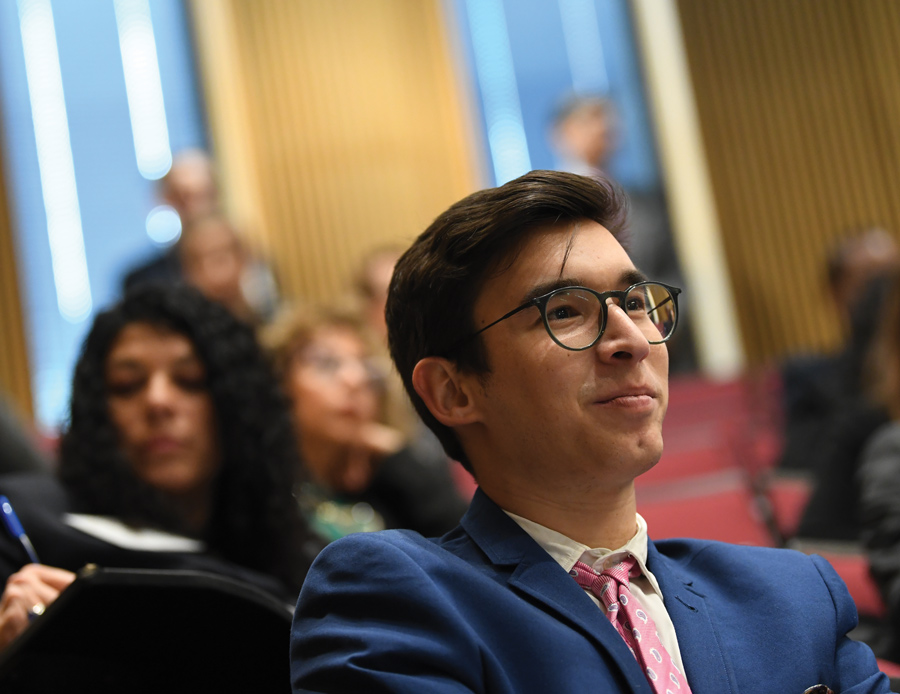

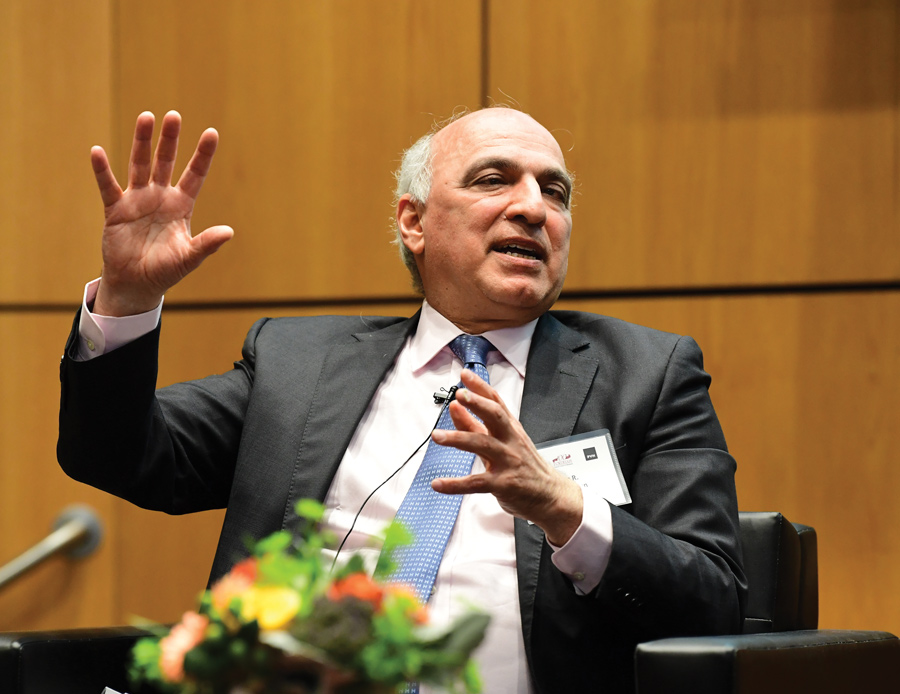
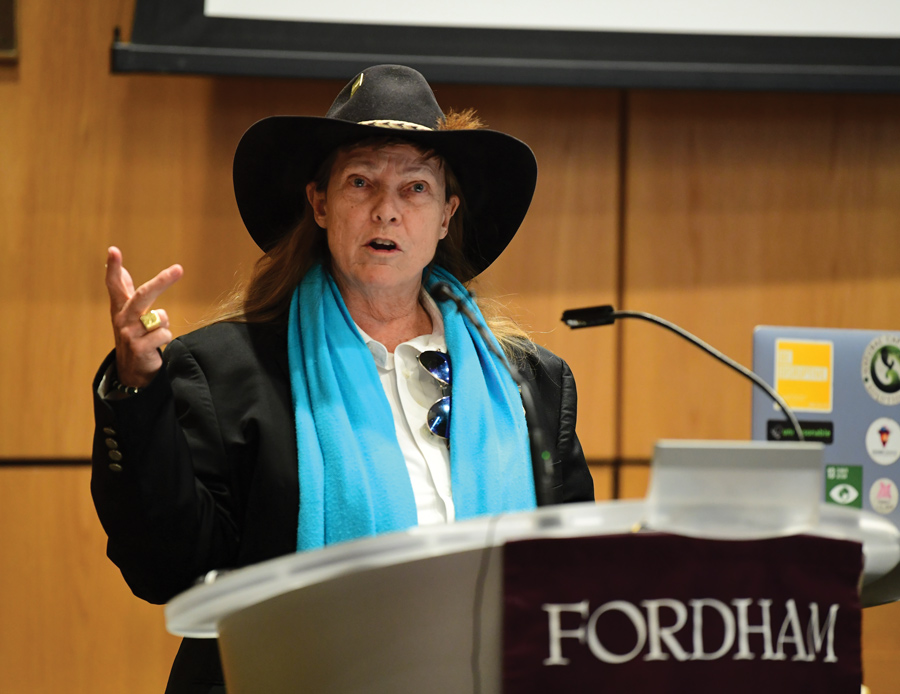
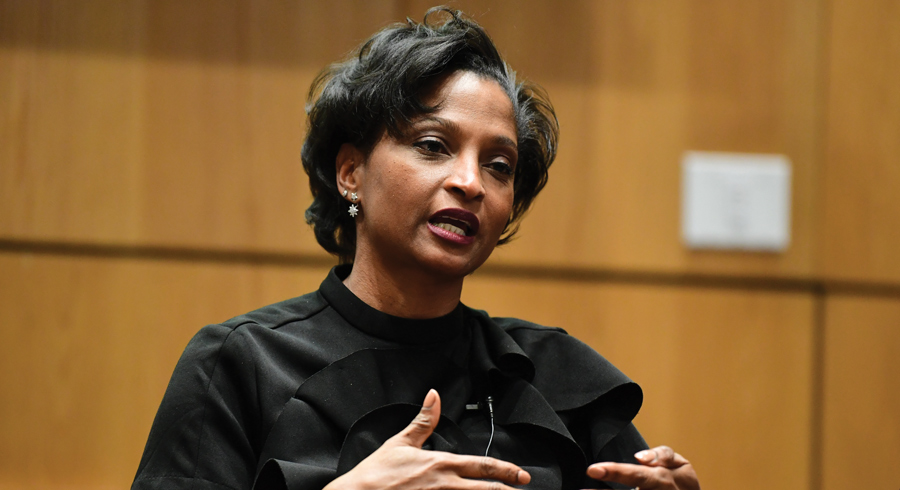
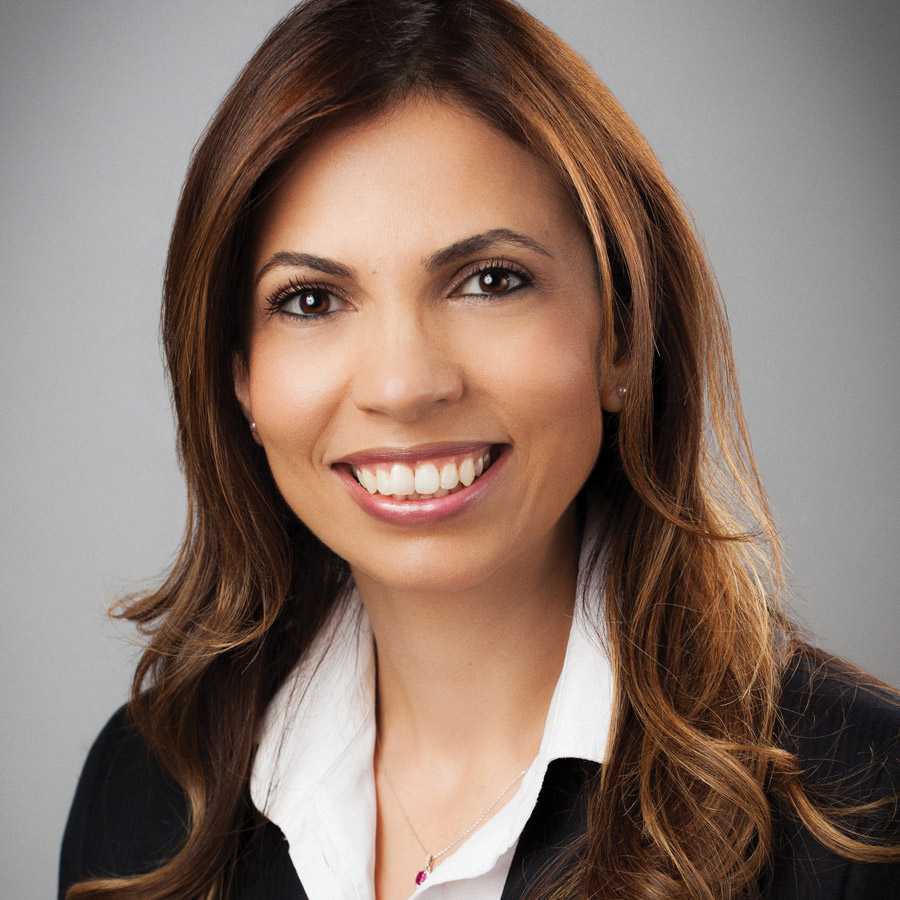

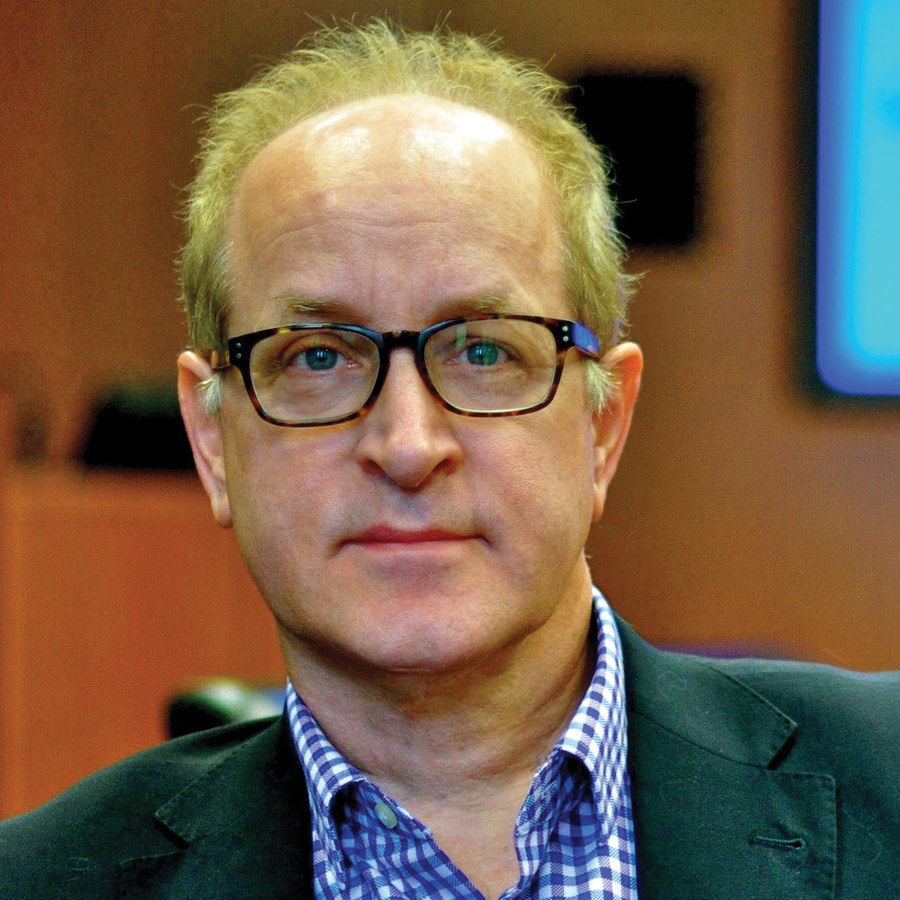
Associate Dean for Undergraduate Studies and Strategic Initiatives
Since joining the Fordham family in 2008, Lerzan Aksoy has led the undergraduate business program and steered various strategic initiatives, the most fundamental of which have been designing and implementing the Gabelli School integrated core and infusing social innovation and the “business-with-purpose” mantra into the curriculum. She has also organized many high-profile events, including the “Future of Work” conference and Social Innovation Days. But Aksoy’s contributions reach beyond the walls of the University through her scholarly contributions, including five co-authored/co-edited books and over 60 scientific articles centered on measuring customer and employee loyalty and the link to firm performance and societal well-being. The recent book she co-authored, The Wallet Allocation Rule, became a New York Times bestseller, putting forth an innovative, groundbreaking approach that helps managers achieve growth. Today, Aksoy is shepherding the launch of Fordham’s Responsible Business Coalition (RBC), an exciting new initiative that unites business executives across industries, who are committed to implementing widespread sustainability measures without competition.
WILLIAM J. LOSCHERT ENDOWED CHAIR IN TECHNOLOGY ENTREPRENEURSHIP
Blockchain took Big Data to a new level of popular awareness and became one of the fastest-growing focuses of modern business programs. As the Gabelli School’s resident expert in blockchain and cryptocurrencies, Benjamin Cole has made several contributions both on and off campus. Having previously served as director of the full-time and Professional MBA programs at the Gabelli School, Cole helped establish the Gabelli Launch orientation program for full-time students and spearheaded a large curricular restructuring project for the Professional MBA program, making it more nimble and competitive.
In addition, Cole developed the secondary concentration in blockchain at the Gabelli School and organized the “Blockchain Disruptor” conference, bringing C-suite executives from around the world to Fordham. Off campus, he has provided briefings on laundering to the finance minister of Luxembourg, consulted on Bain & Company’s Blockchain & Social Impact Report in China, and served as a keynote speaker at the World Blockchain Forum, the Institute of Food Technologists, and the Association of Food Industries. Cole also delivered a keynote on “Building a Blockchain Program” at the Blockchain Technology and Organizations Research Symposium for business school deans and faculty.
Executive Director of the Center for Positive Marketing
Dawn Lerman has always had a strong interest in language, communication, and culture, applying these interests to her professional research, which focuses on the impact of words and other aspects of language on consumer behavior. These interests are also relevant to her work at the Center for Positive Marketing at the Gabelli School, promoting the use of marketing and marketing intelligence as a force for good.
Lerman fostered a partnership between the Center for Positive Marketing and the Association for National Advertisers (ANA), allowing the Gabelli School to become, and remain, one of the only schools in the country to host an ANA member conference.
She recently co-authored a book titled, The Language of Branding: Theory, Strategies and Tactics, described as “a masterful balance between theoretical rigor and practical relevance and between tactical detail and big-picture strategic insight.” As a result of the book, she has received and accepted a number of invitations to speak at industry conferences on this topic.
Program Director, MS in Business Analytics and MS in Information Technology
A true champion of analytics and data “for good,” W. “R.P.” Raghupathi works diligently to ensure that the collective future is one where business analytics, artificial intelligence, and machine learning go hand-in-hand with philosophies of sustainability and ethical social innovation. As a professor of information technology, Raghupathi developed the MS in Business Analytics and MS in Information Technology, and served as director of both programs.
He also heads Fordham University’s Center for Digital Transformation and directs the Gabelli School of Business Design/AI Labs, helping to shape the understanding of the future of work for Fordham students. For his distinguished accomplishments, he has received several awards, including the 2019 Gabelli School Teaching Innovation Award and the 2018 Gabelli School Faculty Service Award. He is active in his research community, penning more than 60 peer-reviewed journal articles in health care, information technology, sustainability, and innovation.
Many people don’t stop to consider how marketing can be used for good, but Timothy Malefyt is helping to change that. An accomplished researcher and author, Malefyt has published multiple books on topics such as advertising, businessanthropology, ethical practices in business, women consumers, and capitalism, among others.
On campus, he initiated the Gabelli School’s hosting of the Global Business Anthropology Summit in the summer of 2019, promoting the school as a leader in innovative thinking, ethical cause-related marketing, and consumer-focused leadership. Additionally, he helped initiate the Paul Reilly Fellowship for Fordham students to intern at the renowned ad agency BBDO. The Marketing Area Speaker Series, which Malefyt established, has also brought world-class industry speakers to Fordham for networking and inspiration, and a new undergraduate concentration in consumer insights, which he developed, has helped students to hone unique skill sets for careers in this field.
DIRECTOR, SPORTS BUSINESS CONCENTRATION
There’s no business like show business, especially in the the diverse world of sports. Mark Conrad knows this well. In addition to teaching Sports Law and Business and Ethics of Sports, he has also taught courses covering contracts, business organizations, and media law.
For the last seven years, Conrad helped to conceive and organize an annual symposium on the business of sports with the student-run Business of Sports Society at Fordham. He has also provided opportunities for students to meet and learn from sports executives, Olympic athletes, e-sports executives, and many others through his development of the popular Gabelli School Sports Business Speakers Series. Conrad’s books and articles have appeared in academic, legal, and general-circulation publications. The third edition of his book, The Business of Sports—Off the Field, In the Office, On the News, was published by Routledge in 2017.
PROGRAM DIRECTOR FOR MS IN MANAGEMENT
WILLIAM J. LOSCHERT ENDOWED CHAIR IN SOCIAL ENTREPRENEURSHIP
A scholar of humanistic management, which holds that business and commerce ought to advance human dignity and society, Michael Pirson helped to establish an undergraduate sustainable business concentration at Fordham. He teaches such courses as Social Entrepreneurship, Fundamentals of Management, and Principles of Management, and has led the school’s Ashoka Changemaker designation efforts since 2012. He initiated and co-created several large-scale change efforts, including the Well Being Economy Alliance (WEAll), which works with governments, businesses, and other civil society organizations to shift the economy from harming to healing.
Chaitra Nagaraja is a statistician who teaches others how to use data to make the world a better place. One of her research areas is official statistics—income inequality, poverty, and unemployment—which incorporates her keen interest in history. In her recent book, Measuring Society, which discusses the history of official statistics in the U.S., she explores how measurement can improve societal function and the lives of individuals.
Nagaraja has spearheaded curriculum development, including collaboration on the MS in Applied Statistics and Decision-Making program and in the cohort MBA redesign. She has also been developing an undergraduate course, Measurement and Data Visualization, where students combine statistical content with a community-engaged learning component to underscore the view that effective data communication is an ethical imperative.
Nagaraja serves on the American Statistical Association‚ Scientific and Public Affairs Advisory Committee (ASA SPAAC), which advises the ASA board on whether the organization should make a formal statement regarding proposed governmental policies or comment on policies including rule changes in the Federal Register. She recently taught a workshop on research programming to students in India, funded by the World Bank and the International Statistical Institute.
DIRECTOR OF THE CENTER FOR PROFESSIONAL ACCOUNTING PRACTICES
As a native New Yorker, Stanley Veliotis often uses his sense of humor and New York sensibilities to open the door for meaningful conversation with students, but the teachings from his many years in practice keep them listening. Before entering academia, Veliotis worked at law firms focusing on business litigation, corporate, and tax matters, and at two of the Big Four accounting firms. He spent nearly a decade in the Big Four, specializing in the taxation of international employee compensation. Veliotis has published several pieces in industry and peer-reviewed journals, and his empirical research areas include insider trading, earnings management, and the effects of tax law on taxpayer and market behavior. His policy work has explored various inefficiencies of the tax law, and he is often interviewed and quoted in publications such as Bloomberg Businessweek, New York Daily News, The Wall Street Journal, and others. His dedication and work at Fordham has also been recognized through the receipt of several awards, including the 2019 Gabelli School Undergraduate Award for Teaching Excellence, the 2018 Dean’s Award for Visibility, and the 2014 and 2012 Gabelli School of Business Magis Award.
DIRECTOR OF ENTREPRENEURSHIP
At a time when entrepreneurship is becoming a more desirable and viable career for many, Christine Janssen is preparing students to be entrepreneurs for good. A full-time member of the faculty at Fordham for the last 10 years, Janssen is also the advisor to the Entrepreneurship Society, co-founder of the Fordham Foundry, and director of the school’s new online MS in Management program. She assisted in the re-creation and re-launch of the Entrepreneurship concentration in 2010, which quickly was ranked a Top 25 program in a variety of publications, including Bloomberg Businessweek and U.S. News & World Report.
Understanding the ever-changing, in-field job skills required of recent graduates in the business world has always been critical, but Apostolos Filippas is helping Gabelli School students get ahead of the curve. Not only did he help kick-start the MS in Business Analytics’ continuous curriculum revision committee, but he also developed an automatic system that gathers web information to determine which job skills are in high demand.
His recent work examines topics spanning from the economic and policy implications of the sharing economy on the future of work and the limits of online reputation systems, to the management of changes in P2P markets. Filippas’ research has appeared in venues such as Management Science, the San Francisco Federal Reserve Bank, the ACM conference on Economics and Computation (EC), and the ZEW Conference on the Economics of Information and Communication Technologies (ICT).
The Gabelli School of Business has long sought to be an inclusive and diverse environment, encouraging leaders across the school to champion these efforts. Clarence Edward Ball III is one of these leaders. In addition to his teaching responsibilities, for four years, he has been working with Fortune 500 companies to fund student- and faculty-facing diversity initiatives. As the DEI lead for the Gabelli School, he works to ensure that best DEI practices are implemented into policy in admissions, curriculum/instruction, recruitment, personal and professional development, strategic planning, and community-engaged learning.
Ball also runs the Gabelli School’s Corporate Communications Program in Bronx Catholic high schools. Through the program, undergraduate service hours have increased and a few of the high school students have been admitted to the Gabelli School, proving the program to be a useful recruitment tool. As interim director of the Diversity, Equity, and Inclusion (DEI) office, he has created a pipeline for bringing diverse students to the Gabelli School and helped develop a student DEI Board that helps create events geared toward specific demographics. These great strides are sure to change the DEI landscape at the Gabelli School for years to come.
Having served as a faculty member for more than 20 years, James McCann transitioned from adjunct to full-time faculty in fall 2013. His 20-plus year career in financial services both at JPMorganChase and Goldman Sachs Asset Management has enabled him to provide students with the unique and practical advantage of his in-field experience.
In addition to teaching, McCann works with undergraduate students in career advising and development, offering his time and skill while helping guide and mentor students for future careers in finance. McCann has led the finance initiative within the Global Business program since its inception in 2014 and has been a vocal advocate for advancing fintech as a critical discipline in business education.
Outside of the classroom, McCann has published the research report for the consulting firm Finadium, “The State of Performance Measurement for Institutions and Asset Managers,” which studies outsourcing options and decisions for asset managers, custody banks, and institution clients. He also wrote a white paper titled “Global Investment Performance Standards (GIPS) for Alternative Investment Strategies and Solutions: What to Expect” for TurtleBay Advisory Services.

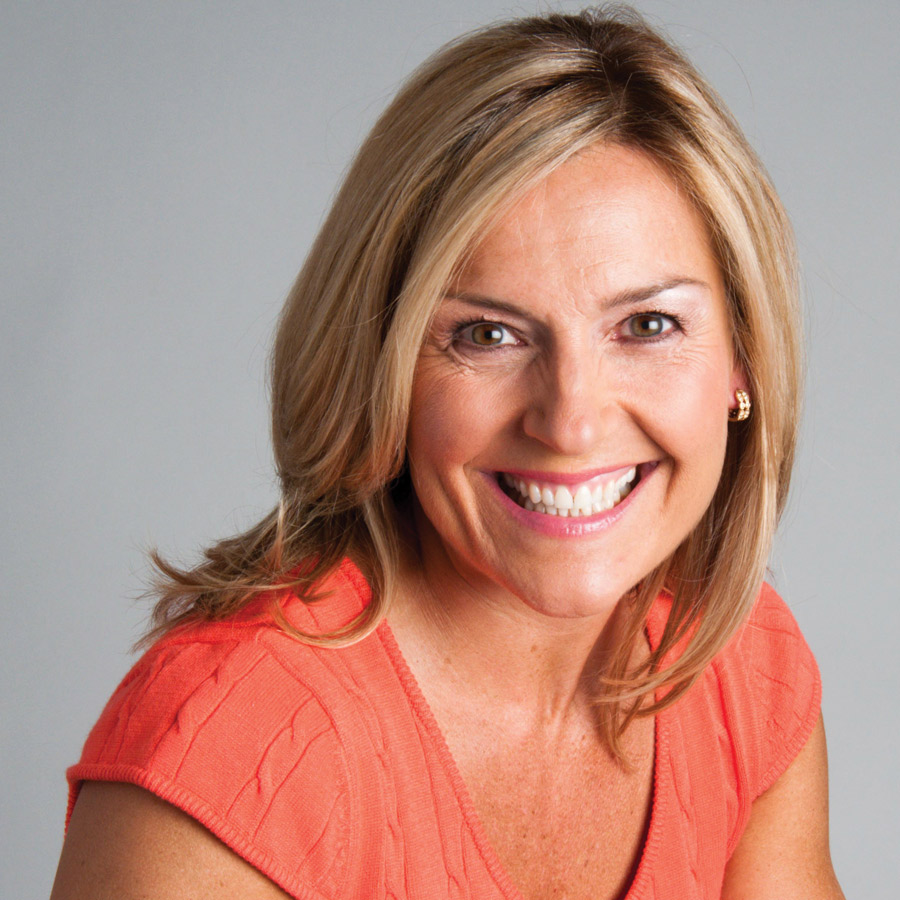
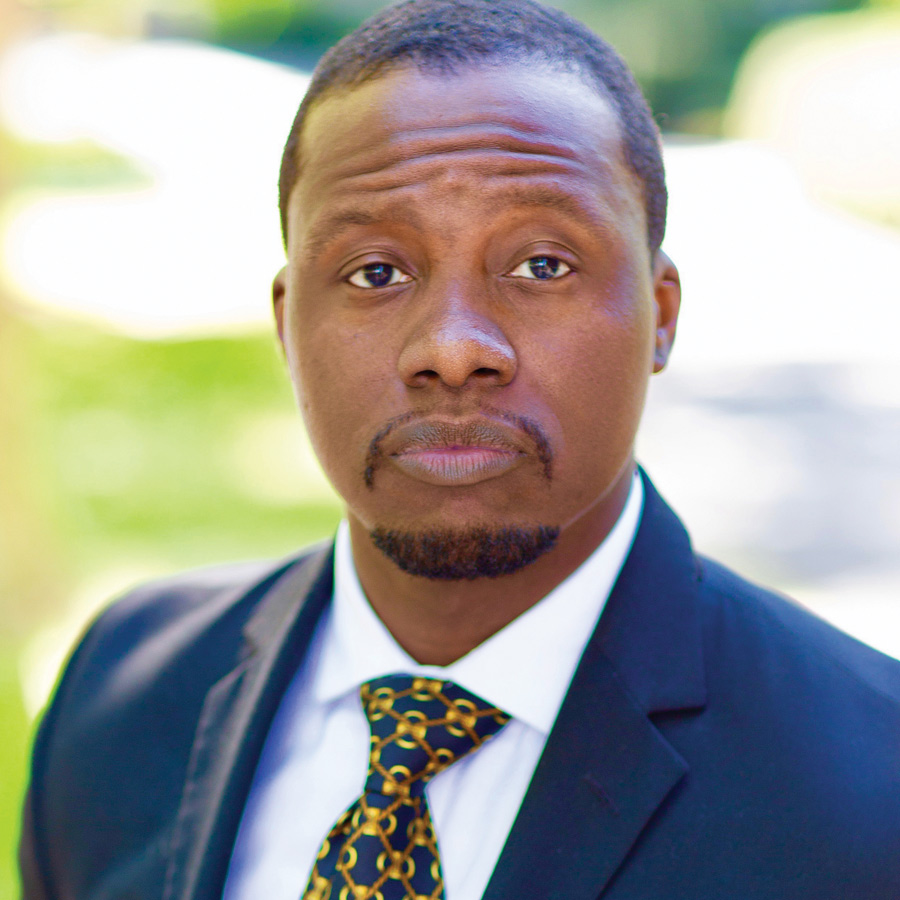
The namesake of the School of Business at Fordham University, Mario J. Gabelli has been the catalyst of transformative change for both the University and the business landscape. Gabelli is the Chairman and CEO of GAMCO Investors, Inc., the firm he founded in 1977. Raised in the Bronx, not far from Fordham’s Rose Hill campus, he graduated from the University summa cum laude in 1965 with a Bachelor of Science in accounting. Gabelli’s wife, Regina M. Pitaro, is a 1976 graduate of Fordham College at Rose Hill and a trustee fellow of Fordham University. She and Gabelli are recipients of Fordham University’s Founder’s Award and the Insignis Medal, the latter of which is awarded for extraordinary distinction in the service of God and humanity.
In addition to their mutual passion for investing, Gabelli and Pitaro share an inviolate belief in education as the great equalizer, the heart and soul of the great American experiment. This belief inspired the couple’s 2010 gift to Fordham University, the largest in the University’s history, revolutionizing its business education. The gift also funded the Gabelli School Ph.D. program, which welcomed its first students in the fall of 2016. The generosity of Gabelli and Pitaro, coupled with their work on the President’s Council and Board of Trustees, has helped advance Fordham to the leading edge of business education.
From fashion to philanthropy, “Manny” Chirico is at the center of business with purpose. He serves as chairman and CEO of the global apparel company PVH Corp. and is a trailblazer in responsible corporate citizenship. Under his leadership, the company acquired Calvin Klein, Tommy Hilfiger, and other famed apparel brands, while working to ensure fair labor conditions throughout the organization’s supply chain.
Chirico’s personal philanthropic work includes serving as a Fordham trustee and on the boards of Montefiore Medical Center and Save the Children, where he has been instrumental in supporting efforts to promote early childhood education in developing countries. In 2018, he received an honorary doctorate from Fordham.
In 2020, PVH Corp. committed a gift of $1 million to the Gabelli School, establishing a partnership to enhance corporate social responsibility through coursework, speakers, visiting scholars, and academic conferences. Manny’s continuing commitment to Fordham, and specifically the business school, ensures that tomorrow’s students are equipped to be leaders in an evolving business world.
Now more than ever, women in business need leaders who will share their experiences and continue to forge a pathway for collective success. Mary Barneby is one of those leaders. She is CEO of the Girl Scouts of Connecticut, where the mission is to build courage, confidence, and character among girls who will make the world a better place. Before joining the Girl Scouts, Barneby had a successful career in finance, holding key roles at several firms, most recently at UBS, where she headed Private Wealth Management.
She was also recognized at the YWCA of New York’s 37th Annual Women Achievers Awards and the National Organization of Italian American Women. Barneby, who continues to champion Fordham University and the Gabelli School, served as the keynote speaker at the annual “Women’s Philanthropy Summit” in 2017. In 2019, she was featured in the “Women Who Mean Business” special edition of New Haven Biz magazine.
A champion of diversity, inclusion, and women’s advancement in business, Harriet Edelman is using her voice to empower the next generation of female business leaders. Edelman, an accomplished senior executive and director with more than 30 years of experience in consumer goods and financial services, currently serves as vice chairman of Emigrant Bank, the largest privately held, family-owned and family-run community bank in the nation.
She began her career with Avon Products Inc., rising quickly to executive leadership positions in virtually every function, including marketing, business transformation, new product development, and sales. As chief information officer, Edelman was responsible for all aspects of IT and supporting operations in 100 markets covered by six million sales representatives. As senior vice president of the global supply chain, she led the production and distribution of more than three billion products annually and oversaw the construction of Avon’s new facilities in Latin America, Asia, and Eastern Europe. She was a member of the company’s executive and global finance committees, and she’s been a guest lecturer around the world, speaking on leadership, technology, women’s advancement, diversity and inclusion, and business strategy.
Any organization with strategic vision needs partners who understand and can help shape and articulate its goals. Bob Gach, chair of the Gabelli School Advisory Board, has helped the school accomplish those goals, and more. As the former managing director for capital markets at Accenture Strategy, Gach served investment banks, exchanges, and asset and wealth managers and also co-led the New York City FinTech Innovation Lab for seven years.
He has spent more than 30 years consulting in the capital markets industry. Gach is not just an industry expert and a skilled project manager, but is a talented leader who distinctly embodies Fordham values. Under his leadership, the Advisory Board has added sub-groups that explore the intersection of curriculum, career development, and the latest industry trends to offer high-level, holistic guidance within their areas of expertise.
From business founder, to race car driver, to angel investor, Fordham alumnus Brent Martini brought his vast experience and passion for social innovation to the table to help Gabelli School students transform their business dreams to reality. In 1998, Martini succeeded his father as president of Bergen Brunswig Corporation, a pharmaceutical distribution company that his grandfather, Emil, founded in 1947. Bergen Brunswig merged with Amerisource Health Corporation in 2001 when the company was worth $2.5 billion, and Martini stayed for a few years, until he followed his passion for racing cars.
A few years later he threw his hat back into the ring, founding TAAC, LLC., and COVE Financial Group. Today, Martini combines his passion for business and cars as a private investor and president of Martini Vintage, LLC, which restores vintage automobiles. Martini has been a long-standing pioneer and supporter of social innovation at Fordham and also endowed the James A.F. Stoner Chair in Global Quality Leadership. Most recently, Martini launched a foundation, Martini Education and Opportunity Trust, to provide holistic opportunities to young people who are committed to working with businesses to improve their Environmental, Social, and Governance performance.
Leader. Trailblazer. Award winner. Gabelli School alumna Esther Kim knew from a young age that she wanted to serve in the Army. However, the positions that most interested her were closed to women.
That was until 2015. Kim was a Fordham University senior and marketing major at the time of Defense Secretary Carter’s announcement that combat roles would be open to women, without exception, as long as they qualified. She became one of 13 female lieutenants picked for infantry or armor out of 29 nationwide who applied. Another nine female lieutenants from West Point also were admitted to combat roles.
At her commissioning in May 2016, Kim was awarded the General Jack Keane Outstanding Leader Award, named for the Fordham alumnus and former Army vice chief of staff. By 2017, 2nd Lt. Kim was with the U.S. Army’s 1st Cavalry Division at Fort Hood, Texas, commanding a platoon of 16 people, including two women and four tanks.
It is Kim’s ultimate desire to join Special Forces or serve in one of the support teams that accompanies Special Forces when it encounters foreign cultures during a military operation. In the meantime, she’s aware of the trail that she’s helping to blaze for women in, and outside of, the military.
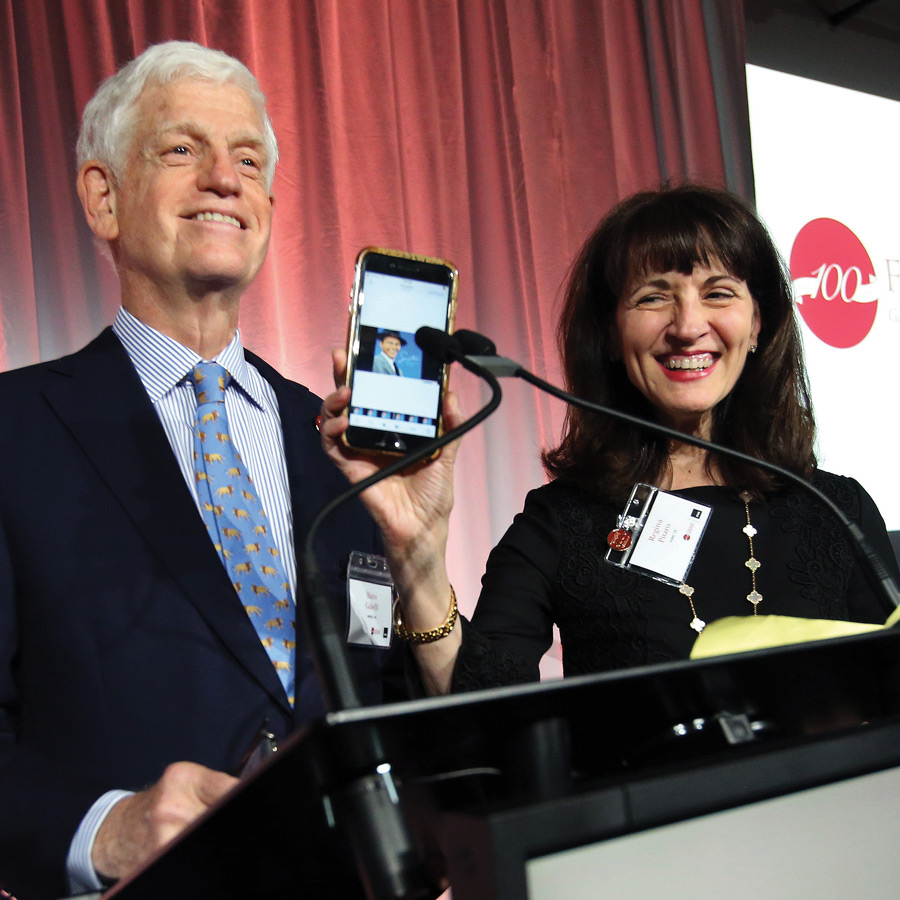
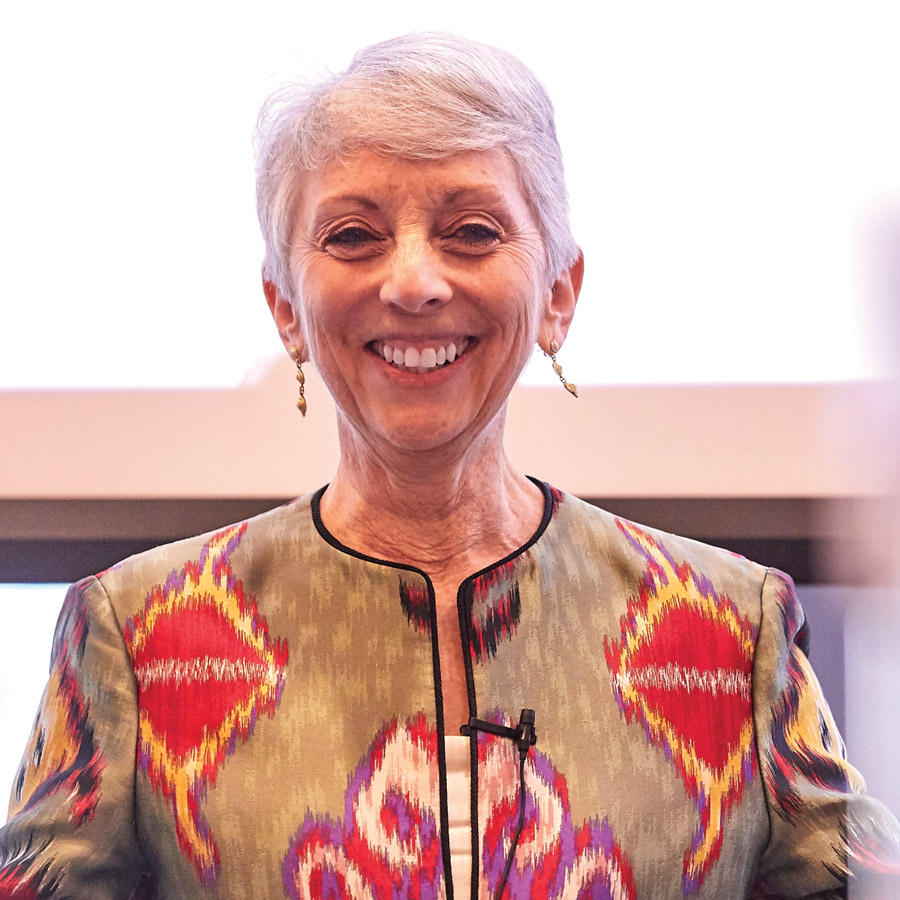
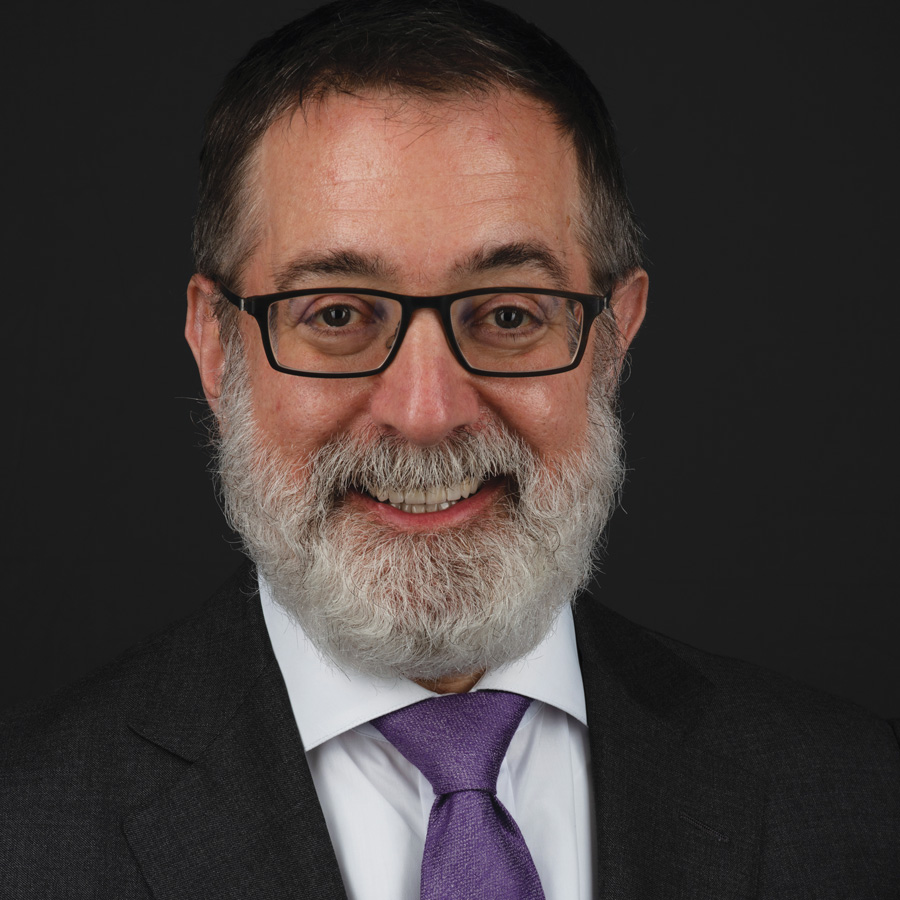
Swarna Swathi Badekila powered up her passion for positive change at the Gabelli School. She founded and served as president of the South Asian Business Association, created to provide students of South Asian descent with networking opportunities, career guidance, mentoring, and leadership development, while organizing cultural celebrations and conferences such as the Global Asia Conference 2020.
As a lead student ambassador, Badekila assisted Admissions in bridging the gap between the Gabelli School and prospective Indian students. She is also involved with the Sustainability Accounting Standards Board (SASB) as a lead volunteer for the 2019 SASB Symposium. She was selected to be a part of the KPMG Professional Practice Research team, conducting research on fraud in investment banking and capital markets industries.
It is difficult to see light in what might seem insurmountable, but Alexa Nicole Cucchiara knows a thing or two about resilience. This theme is among many others explored in her book, Power to Persevere.
As a young adult who battled cancer halfway through college, Cucchiara resolved to use her experience to encourage others to change their perspective and see the light within any situation. “It is possible to strive for peace and serenity, all we need to do is learn how to stay strong and true to our core,” she writes.
Cucchiara is credited with bringing the Creator Institute, an organization that empowers young authors, to campus, and serves as president of the Fordham chapter. Cucchiara also motivated students to participate in entrepreneurial ventures by fostering community within the Entrepreneurship Society.
As part of her mission to inspire and empower, she raised more than $1,000 for Cycle for Survival and participated in the Luna Peak Foundation’s project, “Inspire Hope,” to show cancer fighters that there is life after cancer. She has also been featured in the BeYOUtiful Foundation’s Wonder Woman blog series and on Insider and Fox News.
Nicole Into tackled it all during her time at Fordham. She was fully immersed in campus life, serving as president of the Fordham Marketing Association (FMA) for two years and leading a rebrand of the club, while growing and improving the organization both on campus and as a chapter of the American Marketing Association (AMA). Into oversaw and initiated events for the FMA including alumni panels, community service, and fundraising efforts, and represented the University in the AMA International Collegiate Conference.
Into is a member of the Lambda Pi Eta National Communications Honor Society, has served as a new student orientation leader, and was involved with WFUV. She held numerous marketing internships at Spotify, Viacom (Nickelodeon), Live Nation Entertainment, and other organizations.
As a mentor and leader for other Chinese students, Xiuwu Yang brought his in-field experience to enhance his peers’ academic experience at the Gabelli School. Prior to his MBA journey, Xiuwu founded Neighbor+, a startup committed to making long-term rental experiences as easy as booking hotel rooms.
He also assisted in organizing events for the Fordham Chinese Business Society, a club he helped turn into one of the largest on campus. To assist with recruitment, he visited China in the summer of 2019, meeting with prospective and incoming students. Yang currently works with the alumni association, the development team, and Dean Rapaccioli to facilitate the establishment of the Fordham Chinese Alumni Chapter in New York.
Promoting inclusivity, mentoring, and managing recruitment programs are all things that Kristopher Alford does alongside being a Fordham student. His classmates and friends consider the California native to be a motivated and driven student, whether leading the charge for his Consulting Cup team or collaborating with the Diversity, Equity, and Inclusion (DEI) Board members.
As a person of color in business, Alford is determined to show others like him that diversity is something to be proud of. The inaugural DEI board president helped oversee the promotion of a more inclusive and diverse environment within the Gabelli School. This is reflected in his work on the board’s Corporate Communications Pipeline programs at Aquinas and Cardinal Hayes high schools, a freshman mentoring program, and cultural events and a diversity recruitment effort that helps students land coveted internships.
Prior to his arrival at the Gabelli School, Alford created Knowtern.com, a website that provides career information and helps connect students with mentors. Google honored the site during Black History Month in 2018.
What do you get when you cross a small-business owner, a Gabelli School student, and a vocal advocate for student groups? The answer: Russell Alexeev.
His peers describe him as a detail-oriented, conscientious classmate and businessperson. A small-business owner, Alexeev manufactures clothing and promotional merchandise for many organizations, including campus groups and clubs. He maintains sustainable and honest practices that benefit the environment and his employees.
Alexeev has participated in and held leadership roles in such clubs as the Residence Hall Association, Fordham Dance Marathon, Beta Alpha Psi, Fordham FinTech Network, Fordham Finance Society, and others. Alexeev has also held internships with Airbnb and the Online Training Academy.
Outside of school, he continues his advocacy in business through the betterment of his community. Once an avid skateboarder, Alexeev noticed that his community’s skatepark was in dire need of repair. Using his business influence, he created a plan and pitched it to Tony Hawk and his foundation; the initiative is still in the works today.
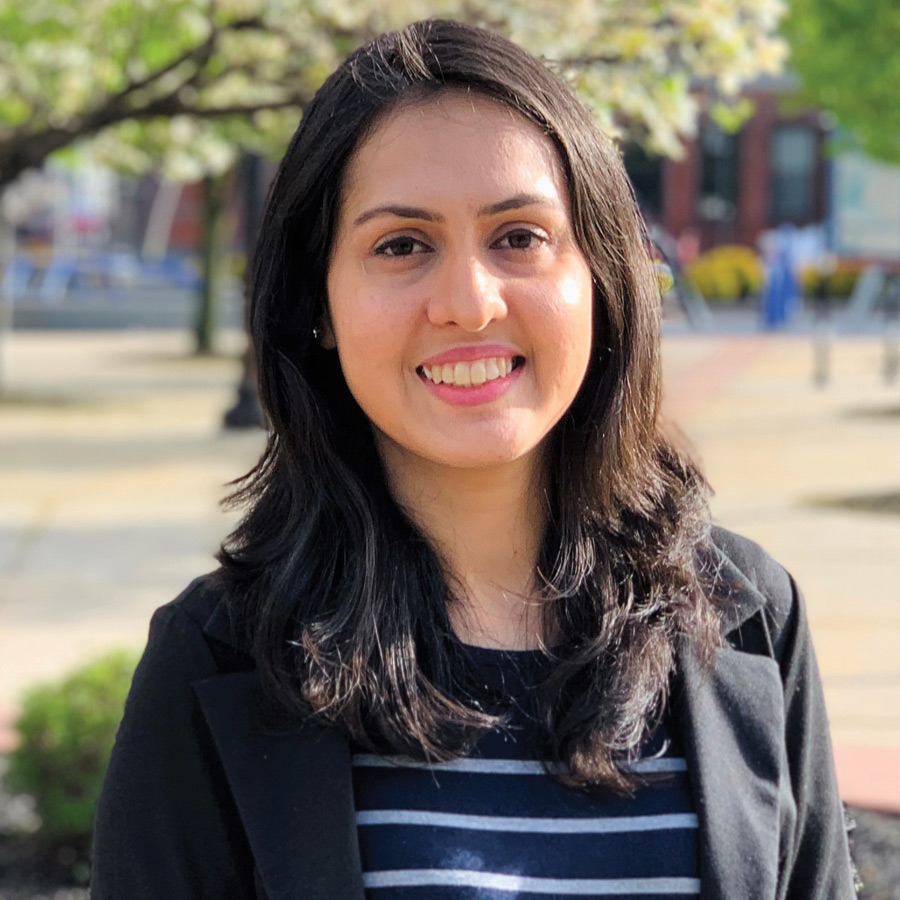
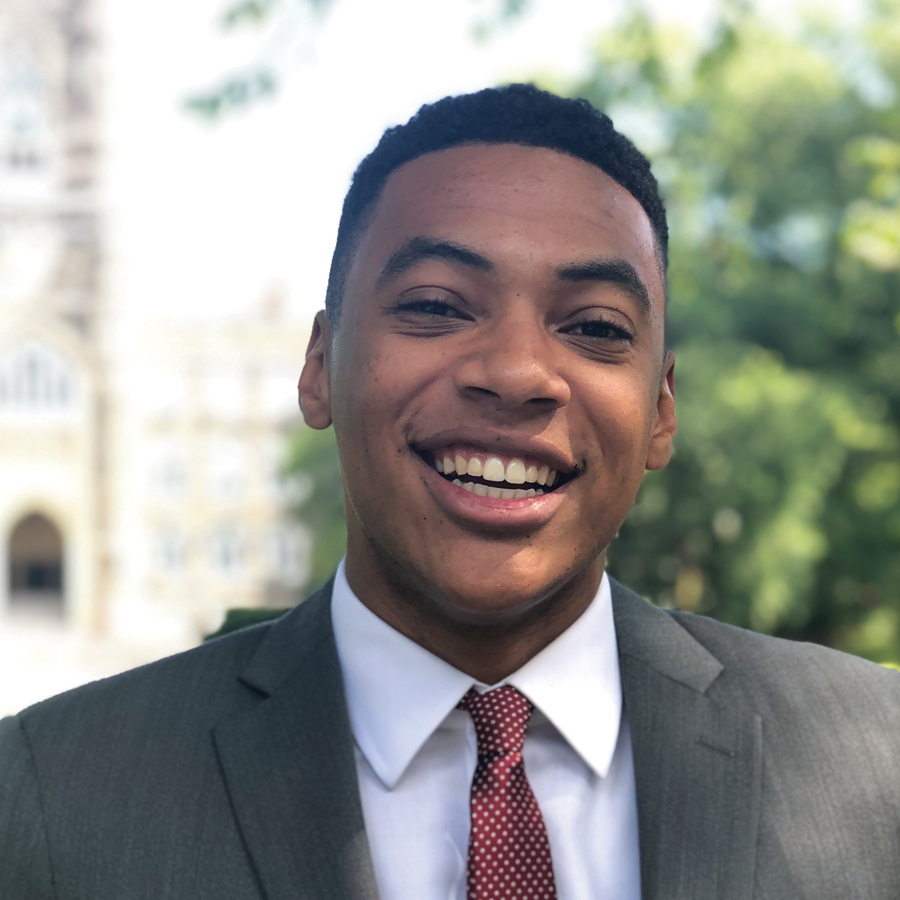
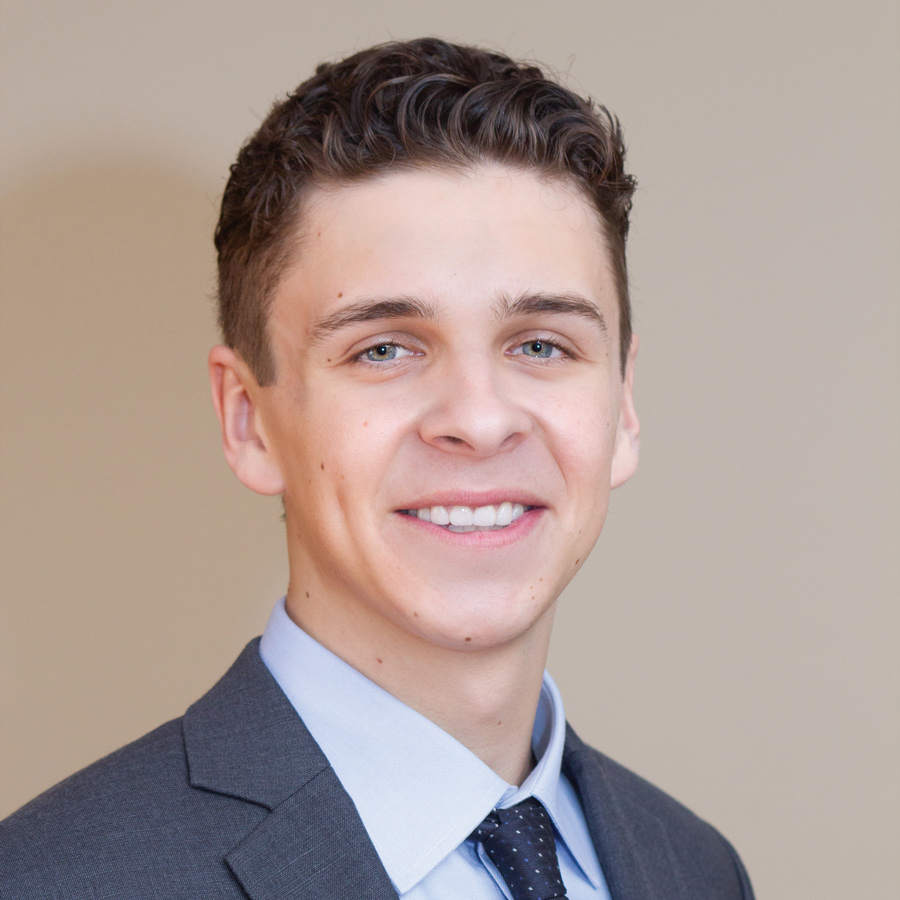
Our final celebratory dedication is awarded to the Gabelli School of Business Class of 2020.
In the face of emergency social-distancing measures, rapid global changes, and uncertainty brought on by the COVID-19 pandemic, the Class of 2020 provided us with a case study in academic excellence, resilience, and unprecedented positivity. This year’s Gabelli School graduates are inherently innovative, prepared to tackle the challenges of the modern business and social landscape.
The Class of 2020 has an opportunity to be a part of a world that’s being reimagined and, as our school enters its next 100, using business to reimagine our world is exactly what is at the heart of a Gabelli School education.